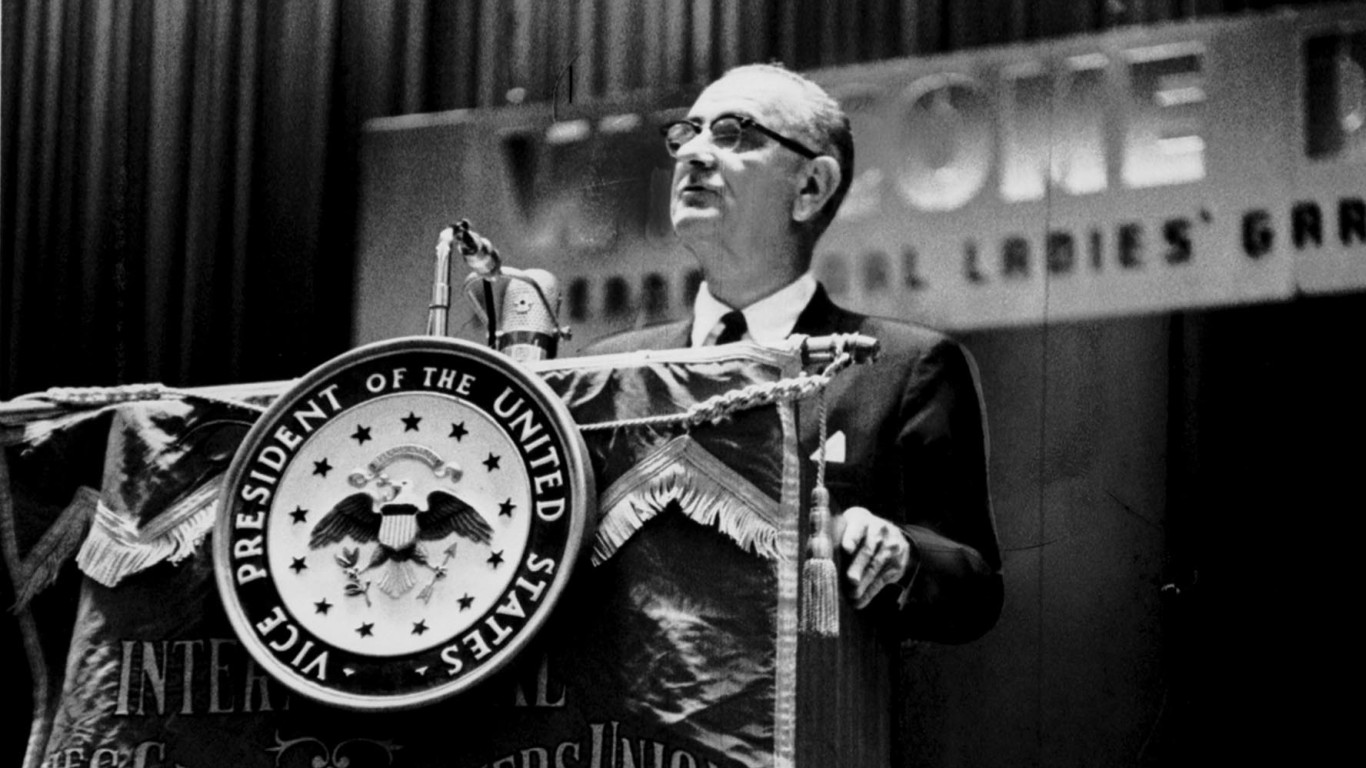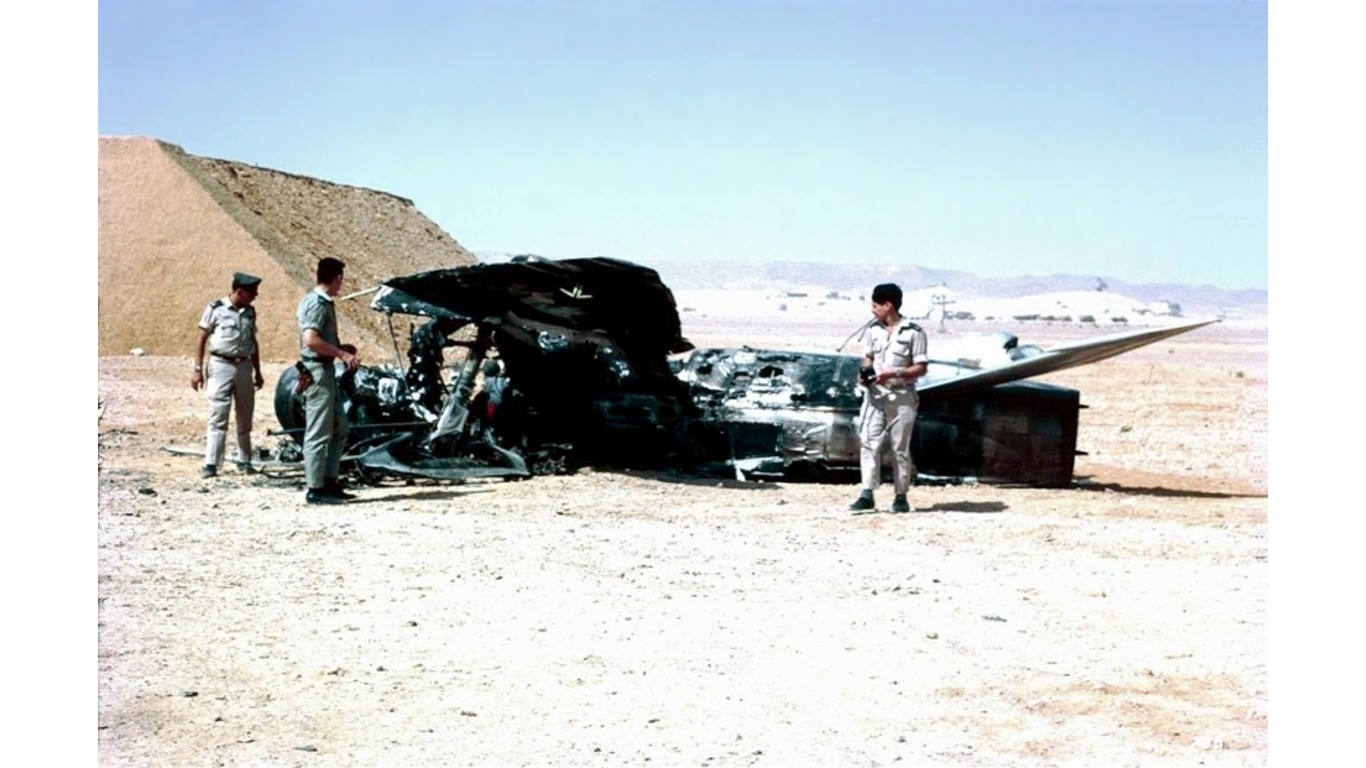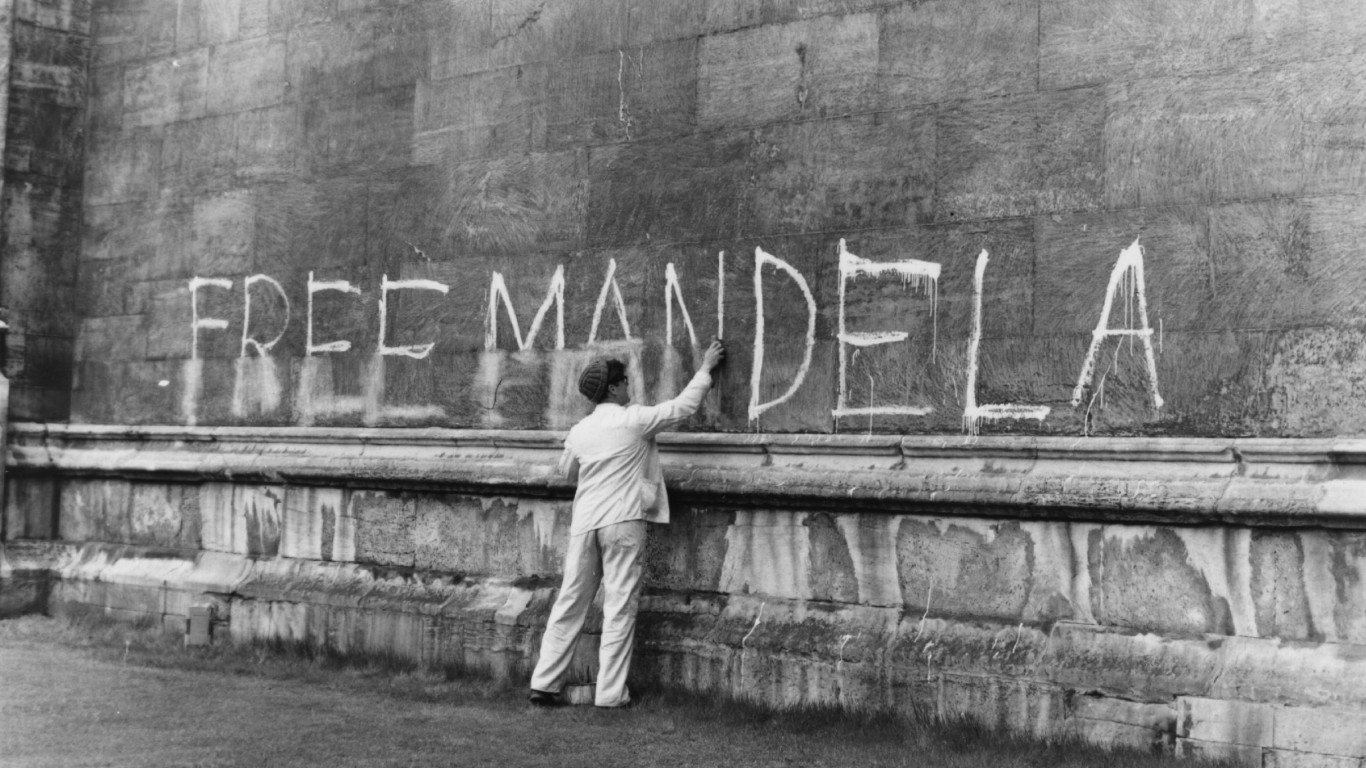
The 1960s is remembered as a time of cultural upheaval, the divisive Vietnam War, the clamoring for civil rights by minorities, women, and the gay community, and the beginning of the environmental movement.
24/7 Tempo has identified the decade’s biggest political news stories, concentrating on high-profile political scandals, the beginnings or escalations of historic conflicts, assassinations, and other events that shaped our world, often resonating even to this day. Our sources included the Securities and Exchange Commission Historical Society, as well as various online encyclopedias and the websites of several presidential libraries.
Many of these events involved America’s intelligence agencies. Under the guise of combating communism in the Western Hemisphere and Asia, organizations such as the CIA were enmeshed in coups in South Vietnam, Brazil, and Uruguay. The CIA also trained Cuban exiles for the disastrous Bay of Pigs invasion, which became a public embarrassment for the United States. The incident convinced the island nation to accept missiles from the Soviet Union that led to the Cuban Missile Crisis a year later.
Click here to read about the biggest political news stories of the 1960s.
U.S. government misinformation involving an incident in the Gulf of Tonkin off the coast of North Vietnam led to a U.S. troop buildup in Southeast Asia and enmeshed our nation in a long and costly war. (This conflict was the largest of the 21 biggest wars of the 1960s.)
On these shores, J. Edgar Hoover’s FBI, ever-vigilant for homegrown subversives, was convinced that civil rights icon Dr. Martin Luther King Jr. was a danger to America and obtained authority to wiretap his phone from then-Attorney General Robert F. Kennedy. (Here are 32 powerful quotes from Martin Luther King Jr.)
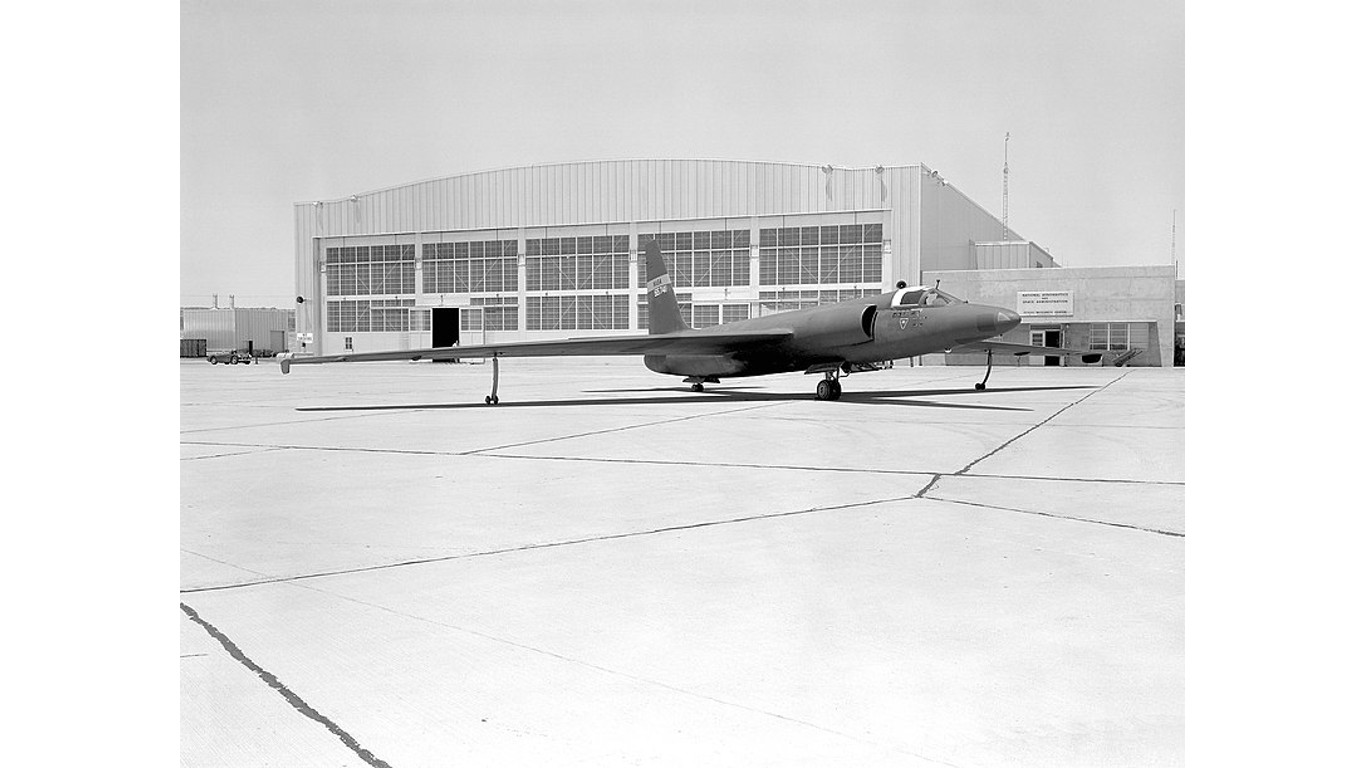
1960: Soviets shoot down U-2 spy plane
On May 1, the Soviet Union shot down a U-2, a spy plane capable of flying at altitudes as high as 70,000 feet, capturing pilot Francis Gary Powers and causing an international crisis. The U.S. was embarrassed as the event revealed the extent of clandestine operations over Russia, and contradicted initial American claims that the U-2 was a weather reconnaissance plane. Powers was tried for espionage and given a 10-year sentence, but in 1962, he was traded back to the U.S. in exchange for convicted Soviet spy Rudolf Abel.
[in-text-ad]
1960: Nazi Adolf Eichmann captured
On May 11, Eichmann, a chief architect of the Holocaust, was captured by Israeli agents in Buenos Aires, where he had gained sanctuary after World War II. He had been living under a pseudonym, evading justice for his war crimes. His capture led to a high-profile trial in Israel and he was hanged for his crimes in 1962.
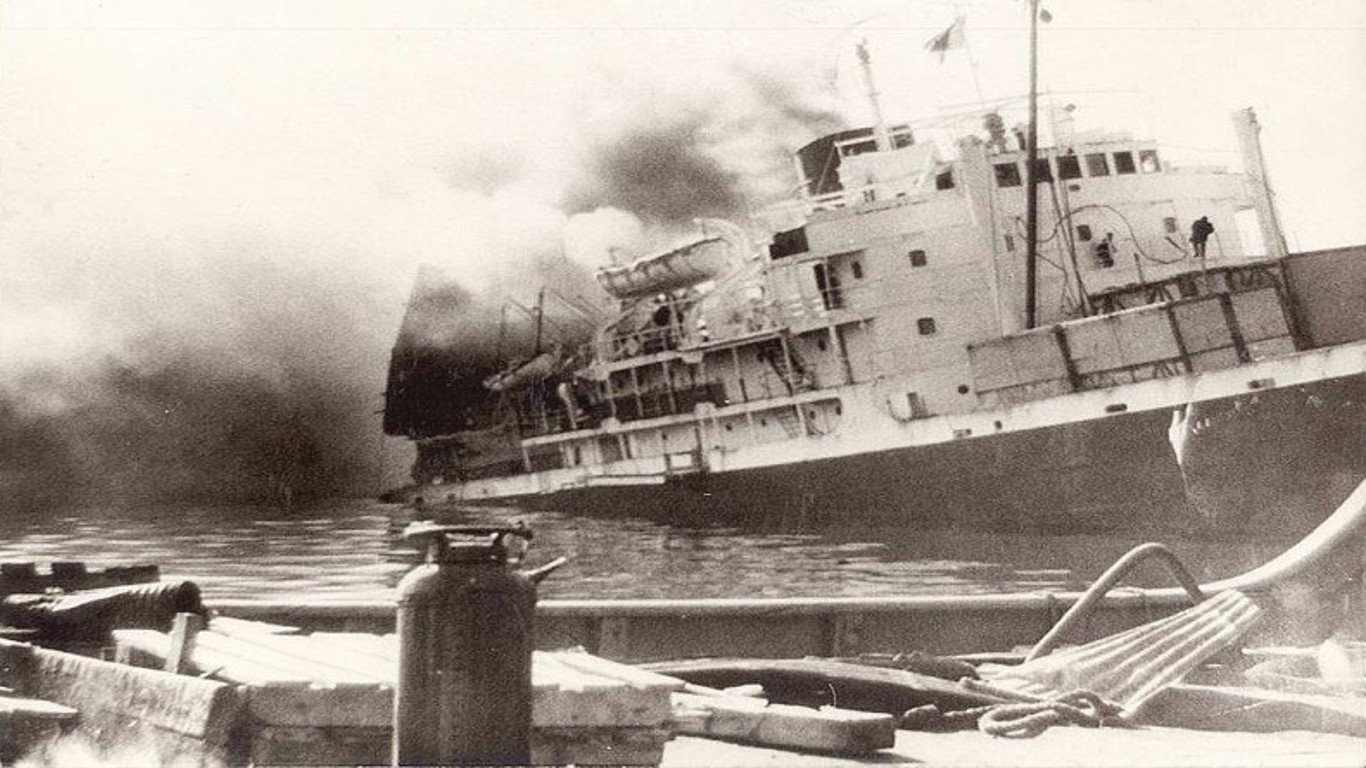
1961: Bay of pigs invasion fails
In 1961, the CIA trained and supplied a force of Cuban exiles who landed in the Bahía de los Cochinos – the Bay of Pigs – on Cuba’s southern coast in April with the aim of overthrowing Fidel Castro’s newly created communist regime. However, the invasion ended disastrously within three days, as Castro’s forces quickly overwhelmed the insurgents and promised air support by the U.S. did not materialize. The event was a massive embarrassment for the U.S., intensifying Cold War tensions and solidifying Castro’s power in Cuba.
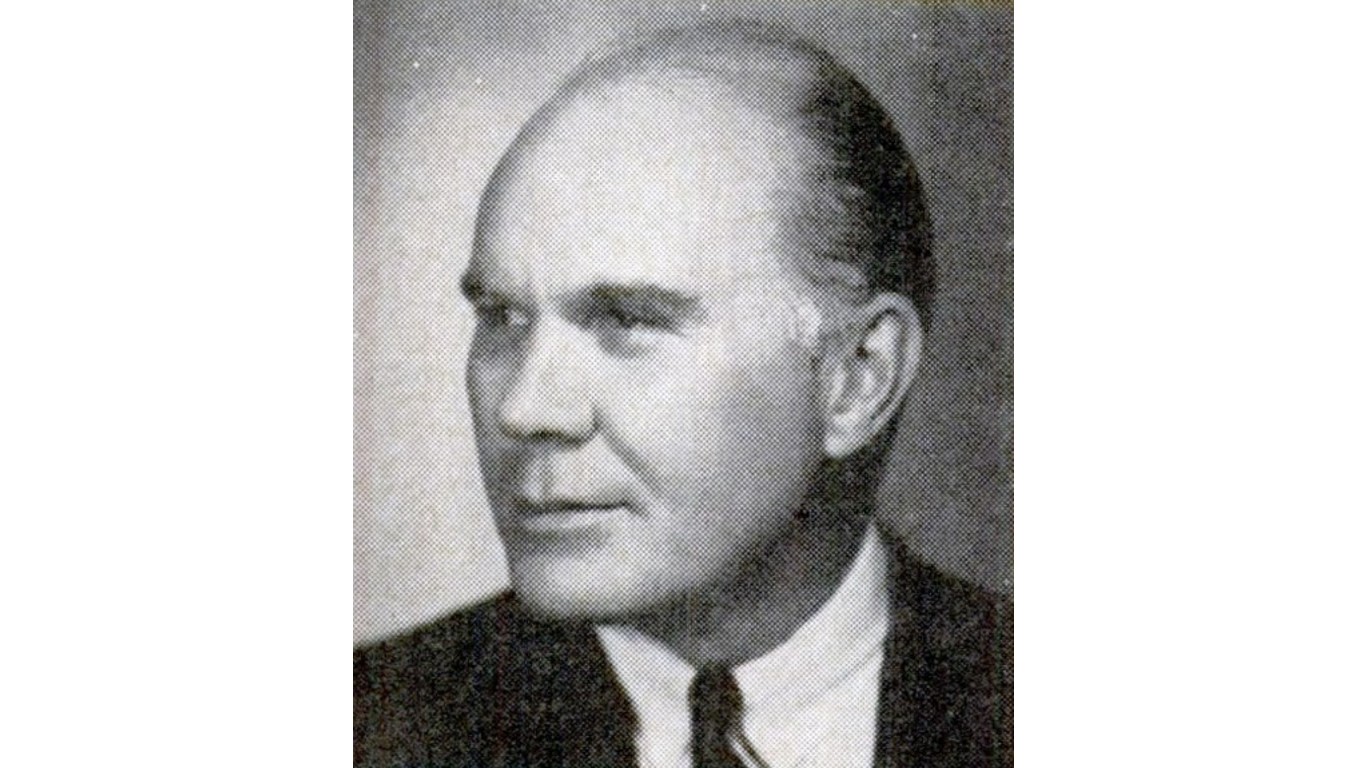
1962: Rep. Johnson indicted on bribery charges
In 1962, Rep. Thomas F. Johnson (D-Md.) was indicted amid a scandal involving the Maryland savings and loan industry. Johnson, along with industry members, faced charges of bribery, shaking the political landscape. The high-profile case underscored the alleged corruption within the S&L industry and its influence on local politics.
[in-text-ad-2]
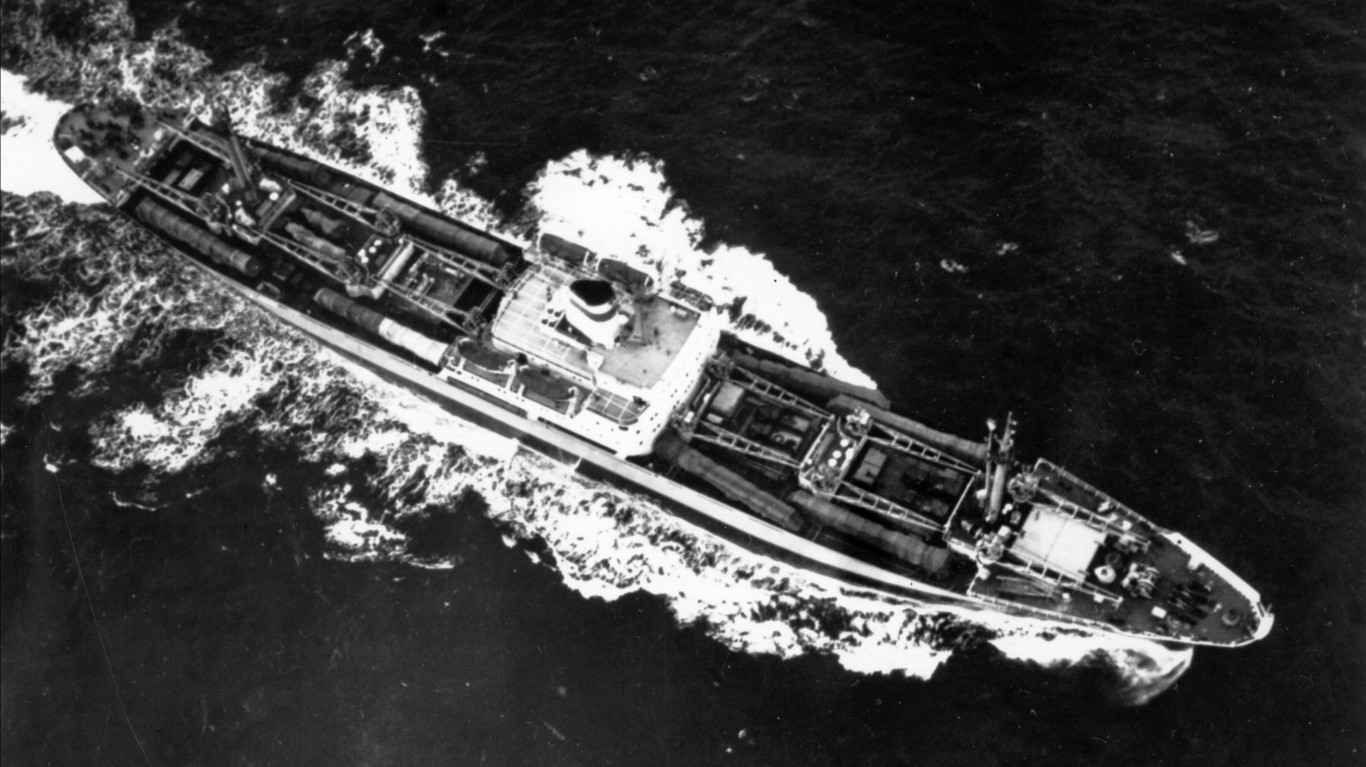
1962: Cuban missile crisis threatens world peace
The Cuban Missile Crisis was a 13-day standoff between the U.S. and the Soviet Union. It began when American intelligence discovered Soviet nuclear missiles stationed in Cuba in October 1962. President John F. Kennedy ordered a naval blockade of Cuba and demanded the missiles’ removal. The crisis brought the world to the brink of nuclear war but was defused after intense negotiations, with the Soviet Union agreeing to remove the weapons and the United States withdrawing missiles from Turkey, bordering the Soviet Union, and pledging not to undertake another invasion of Cuba.
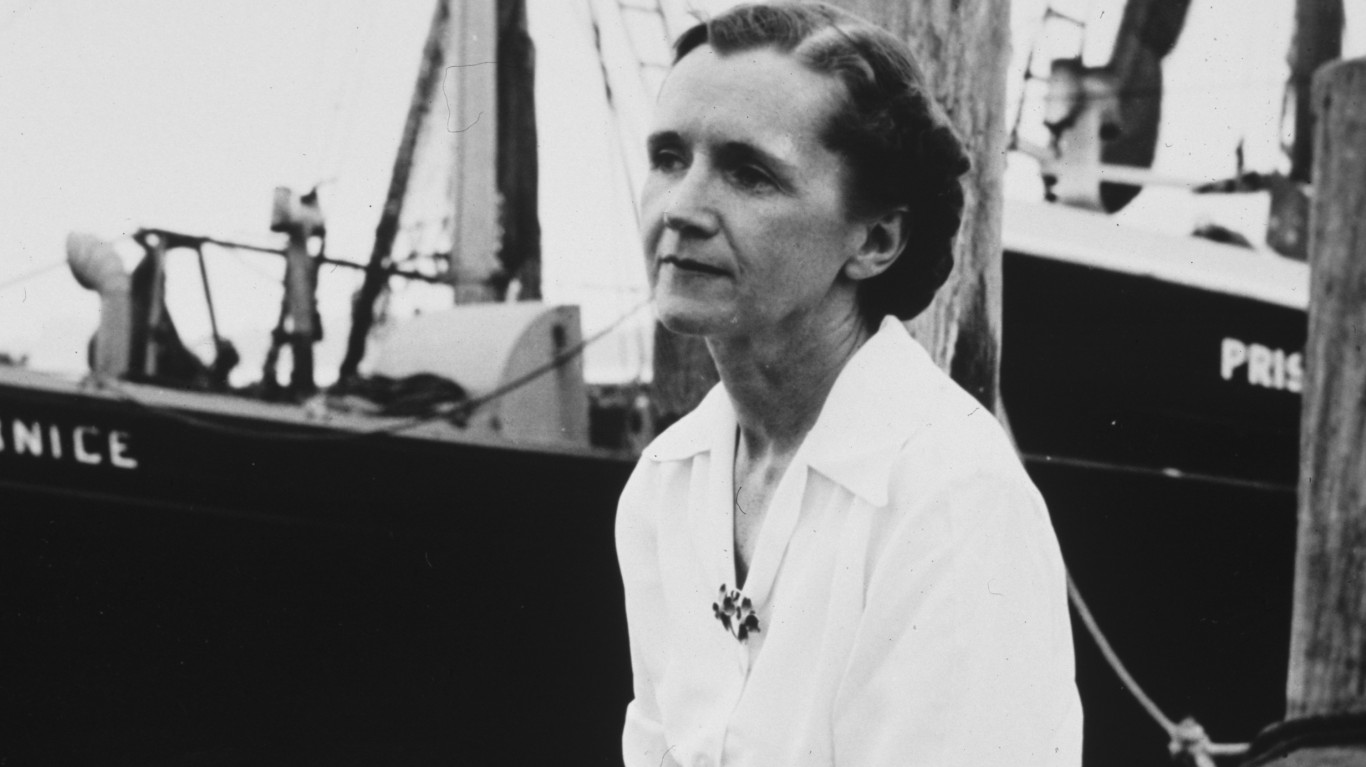
1962: “Silent Spring” changes our view of pesticides
“Silent Spring,” a groundbreaking book by Rachel Carson, exposed the damaging effects of pesticides, particularly DDT, on the environment, leading to widespread public concern. Carson’s work sparked intense debate, making headlines and prompting scrutiny of chemical companies. The book’s influence was significant, leading to a shift in public policy and the establishment of the U.S. Environmental Protection Agency.
[in-text-ad]
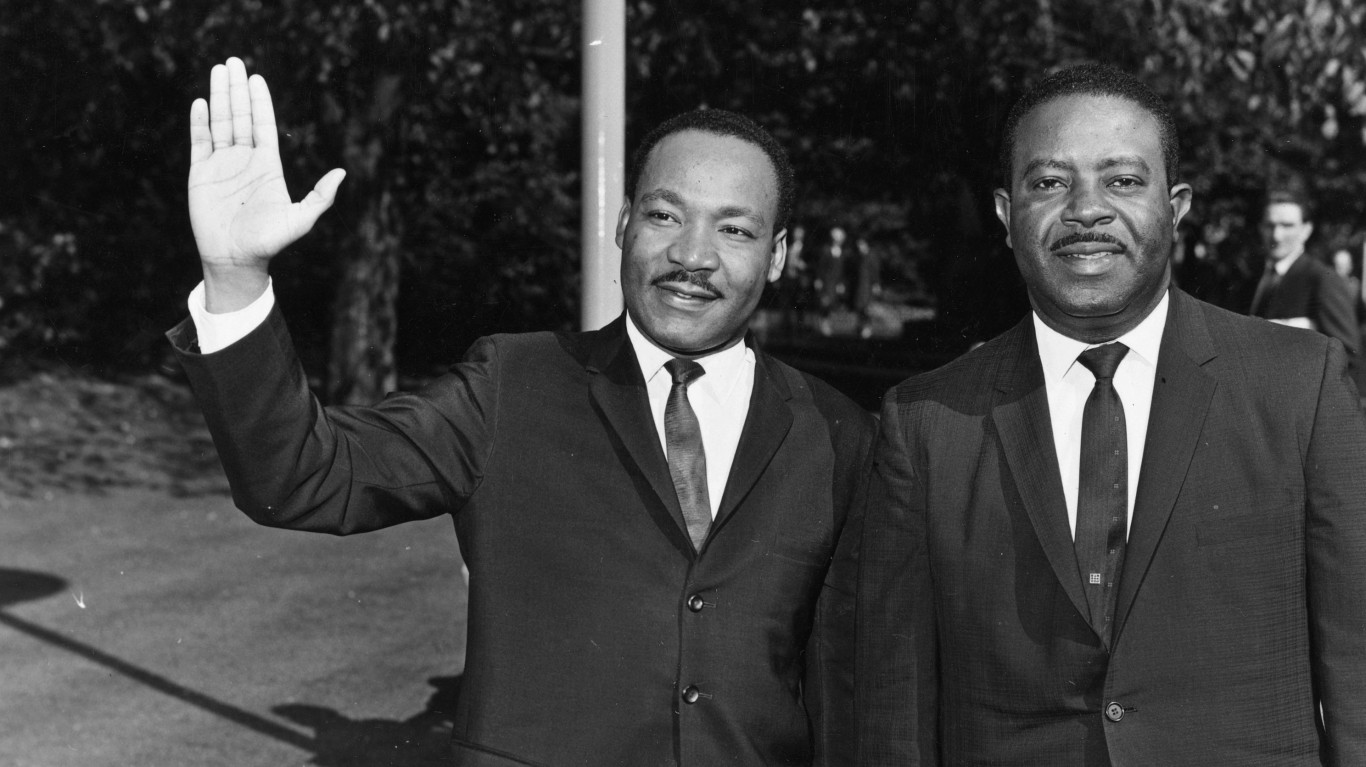
1963: U.S. wiretaps Martin Luther King Jr.’s phone
In 1963, Attorney General Robert Kennedy approved wiretapping Martin Luther King Jr.’s phones, intensifying the government’s scrutiny of the civil rights leader. This decision came in the wake of King’s historic “I Have a Dream” speech, which heightened his profile and led the FBI to label him “the most dangerous and effective Negro leader in the country.” The wiretapping was part of a broader campaign against King, which was widely reported in the news that year.
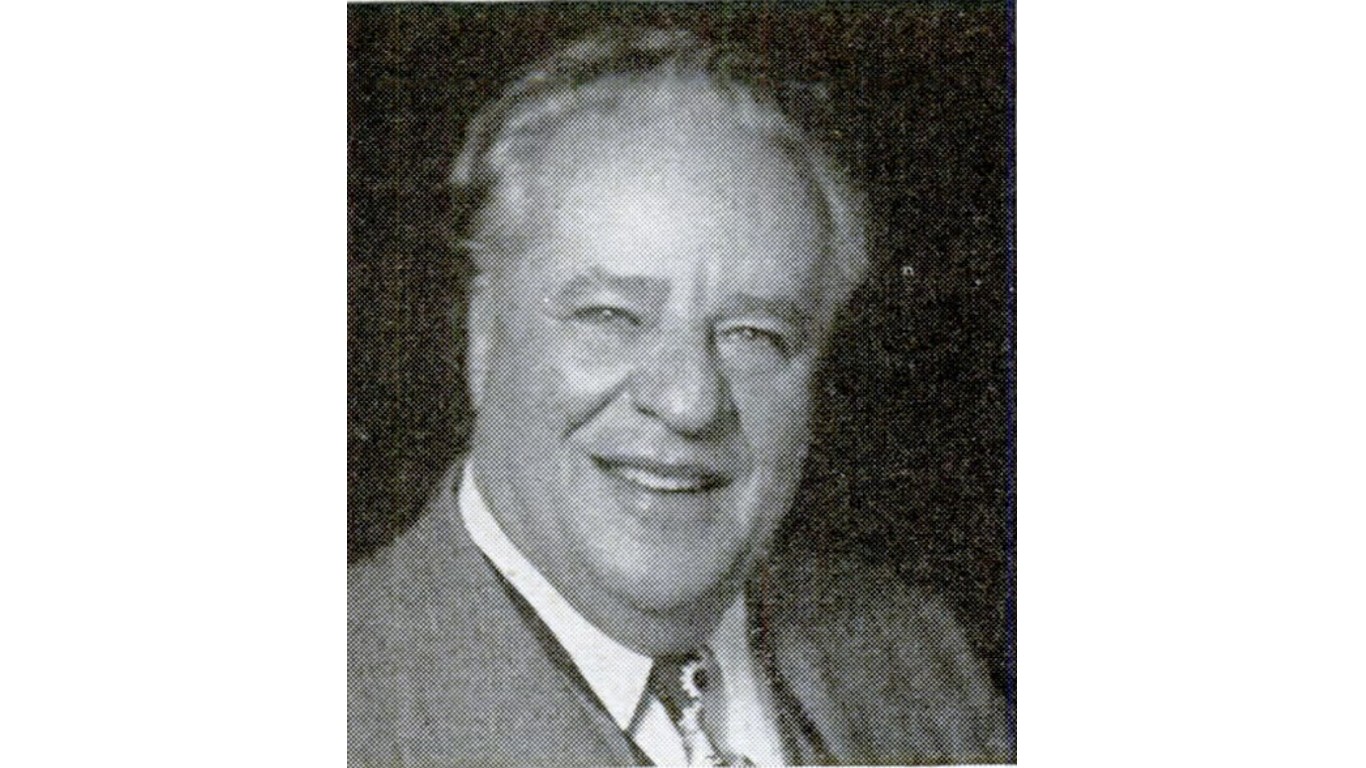
1963: Rep. Boykin charged with conspiracy, fraud
In 1963, Representative Frank W. Boykin (D-Ala.) was convicted on conflict of interest and conspiracy charges related to land deals in Virginia and Maryland. He was fined and sentenced to six months’ probation. President Lyndon B. Johnson pardoned Boykin in 1965. Boykin was one of the longest-serving congressmen from Alabama.
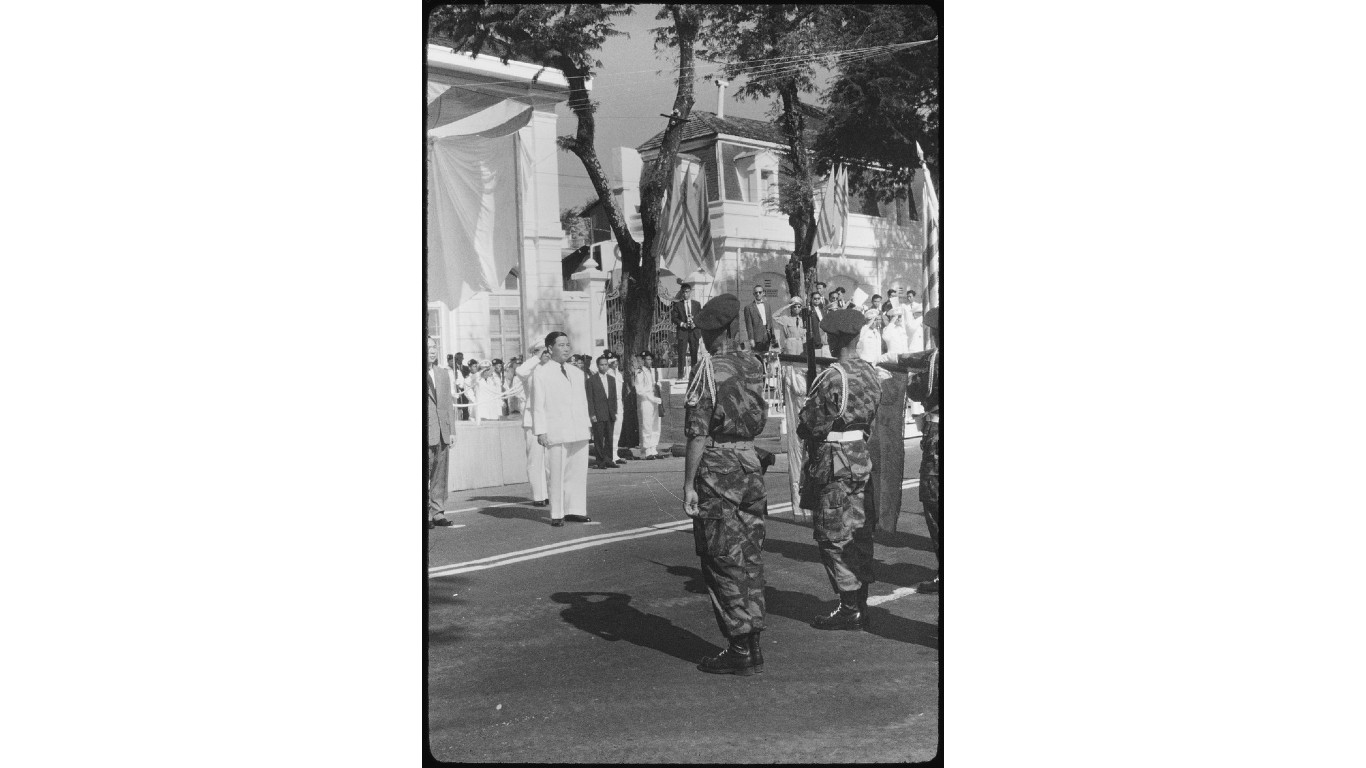
1963: South Vietnamese coup
In 1963, the South Vietnamese coup led to the assassination of President Ngo Dinh Diem, signaling a major turning point in the Vietnam War. A faction within the South Vietnamese army executed the coup amid Diem’s oppressive policies and religious discrimination. The event was globally significant, stirring international controversy and exacerbating the already volatile situation in Vietnam. According to the report commissioned by Secretary of Defense Robert McNamara in 1967 – and revealed with the release of the so-called Pentagon Papers in 1971 – the U.S. government played a key role in the coup.
[in-text-ad-2]
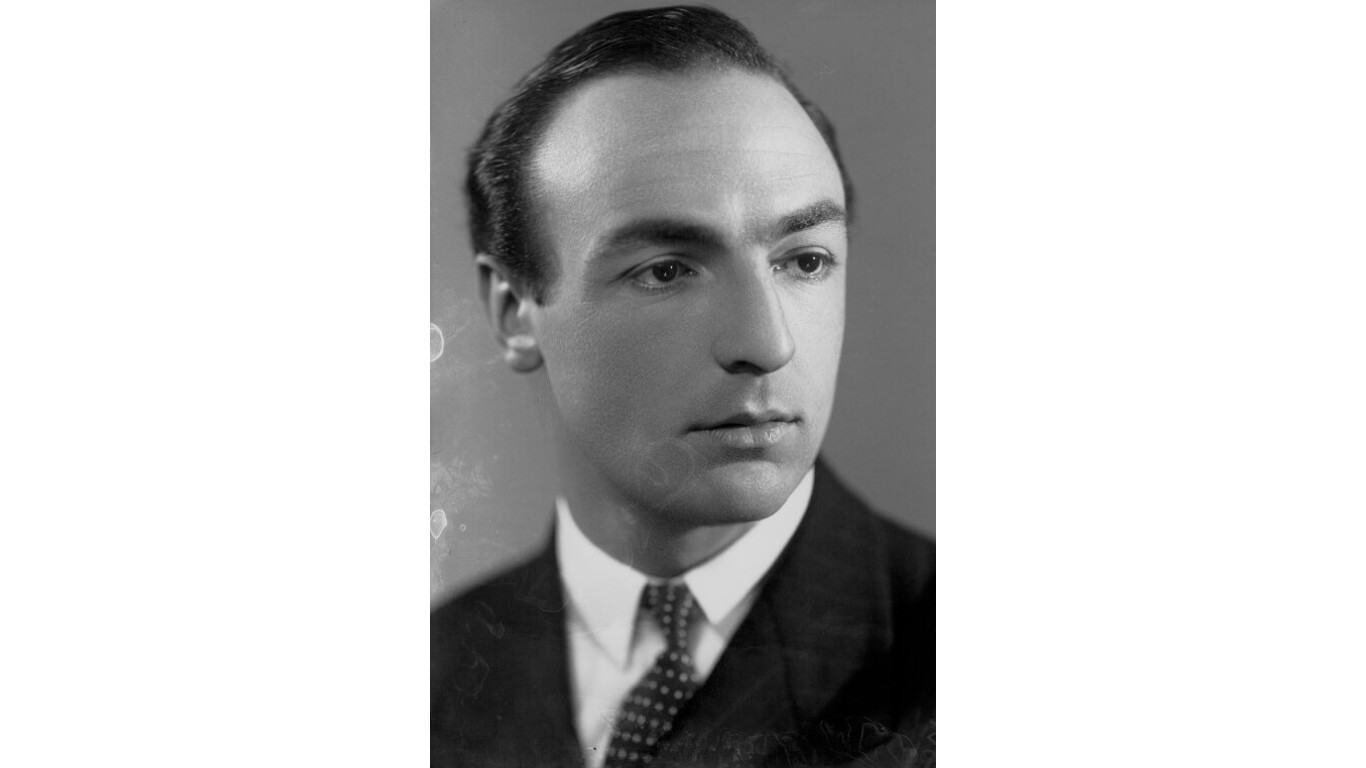
1963: Profumo scandal roils the U.K.
The Profumo Affair of 1963 was a potent mix of sex, espionage, and politics in the U.K. that raised concerns about an intelligence breach involving American and British intelligence services. John Profumo, U.K. secretary of state for war, had an affair with model Christine Keeler, who was in turn in a relationship with a Russian naval attaché. When Profumo lied to Parliament about the relationship, it was seen as a breach of national security and a personal failing. The compromised affair led to Profumo’s resignation and destabilized Harold Macmillan’s Conservative government.
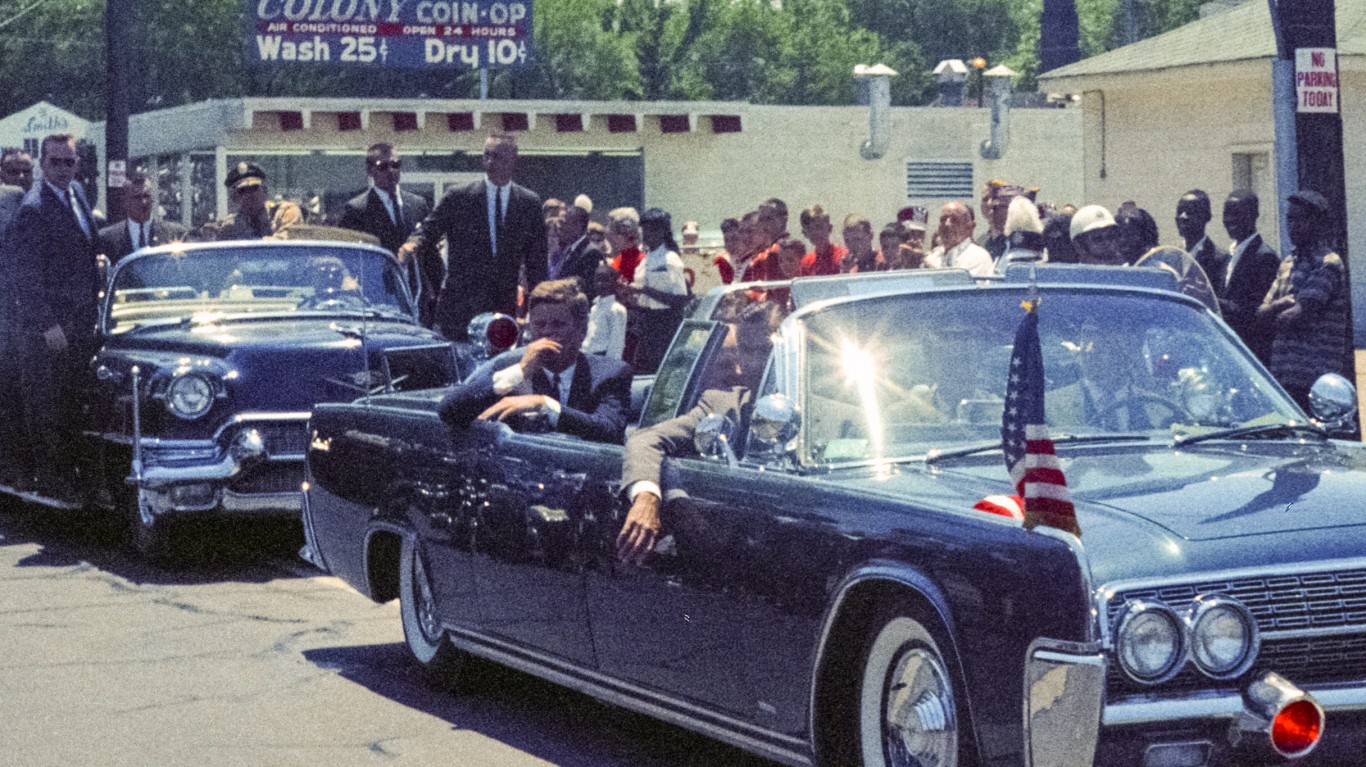
1963: JFK is assassinated and LBJ sworn in as president
President John F. Kennedy was assassinated in Dallas on Nov. 22 while riding in a motorcade with his wife, Jacqueline, and Texas governor John Connally and his wife. Disaffected former U.S. Marine Lee Harvey Oswald was arrested for the crime, but was shot and killed by Dallas nightclub owner Jack Ruby just two days later, so never brought to trial. Vice President Lyndon B. Johnson was swiftly sworn in as president, marking a sudden and tragic transition of power. This event and its aftermath ignited widespread controversy and numerous conspiracy theories that live on till today.
[in-text-ad]
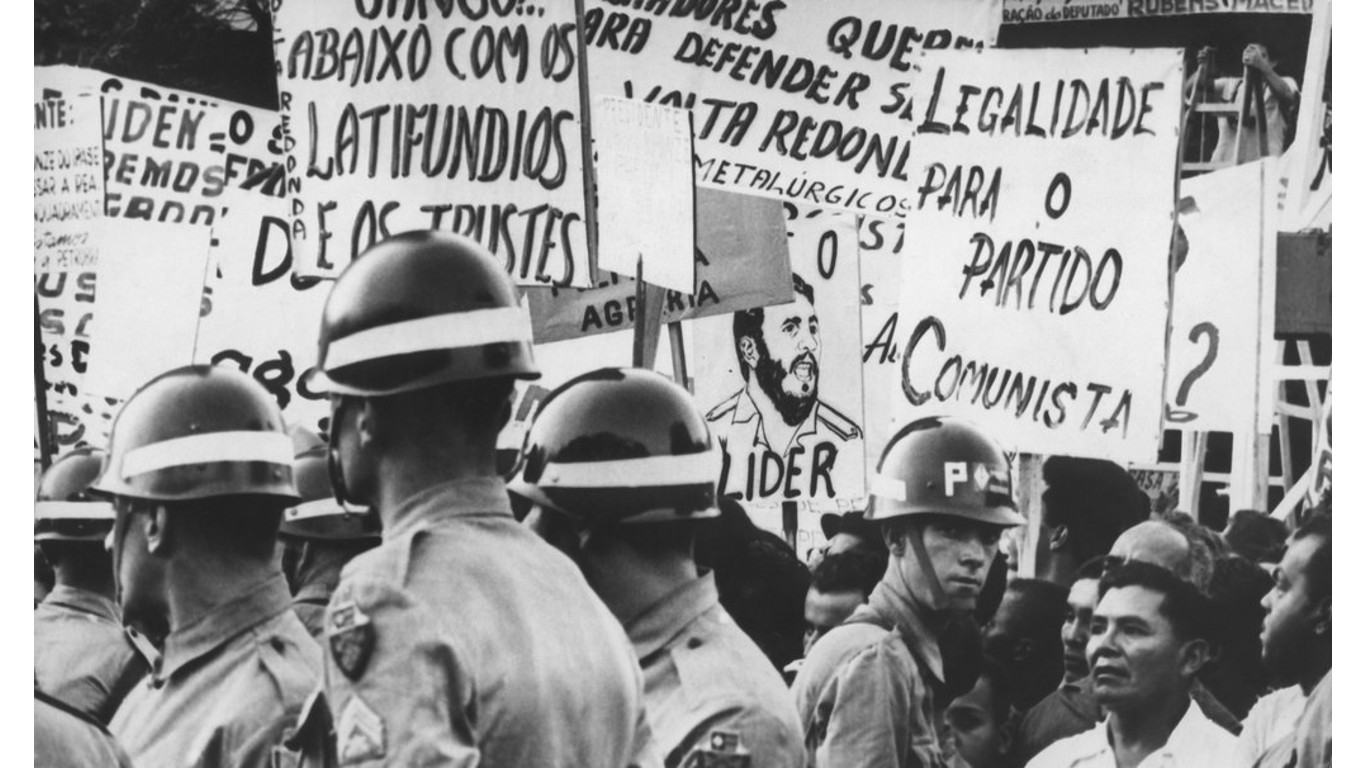
1964: Brazil’s reform-minded president ousted with U.S. assistance
Brazil’s reformist President João Goulart was ousted in a military coup, supported by the U.S. and its ambassador, Lincoln Gordon. Goulart sought to combat illiteracy, limit profit transfers by multinational companies, and redistribute land. His reforms, however, drew significant opposition, and a rebellion broke out in the state of Minas Gerais, soon spreading across the country. The plotters’ ultimate success marked the beginning of a 21-year military dictatorship in Brazil and a significant shift in the nation’s political landscape.
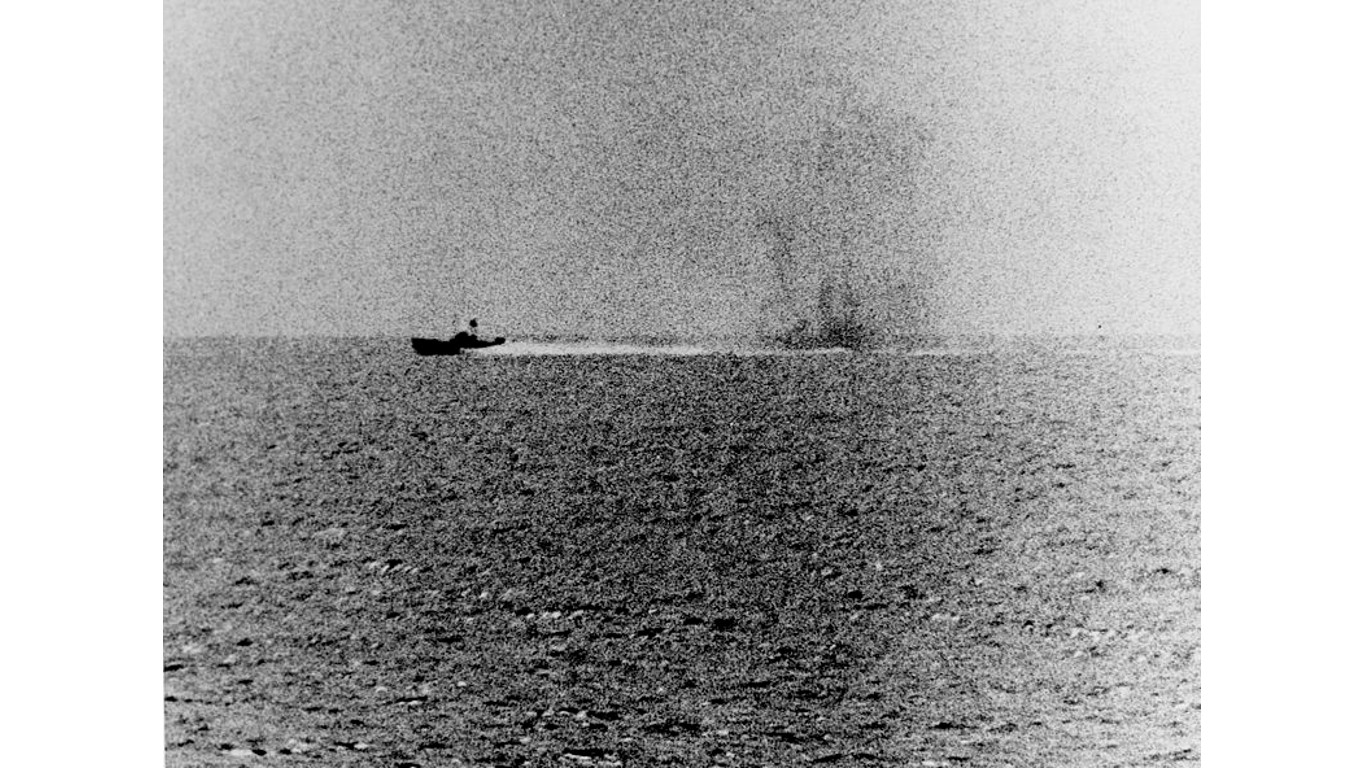
1964: The Gulf of Tonkin incident
The Johnson Administration thought in 1964 that the only way to prevent the spread of communism in Southeast Asia was to support South Vietnamese raids against North Vietnam. To this end, the U.S. Navy had two destroyers, the Maddox and the Turner Joy, stationed in the Gulf of Tonkin, off the coast of northern Vietnam and southern China. It was initially reported that two North Vietnamese patrol boats had launched an unprovoked attack on the U.S. ships, leading to Congress passing the Gulf of Tonkin Resolution, which granted President Lyndon B. Johnson authority to escalate U.S. involvement in Vietnam. Subsequent investigations suggested the incident was overblown and may have involved misinterpretations of radar data, fueling debate about the U.S.’s entry into the Vietnam War.
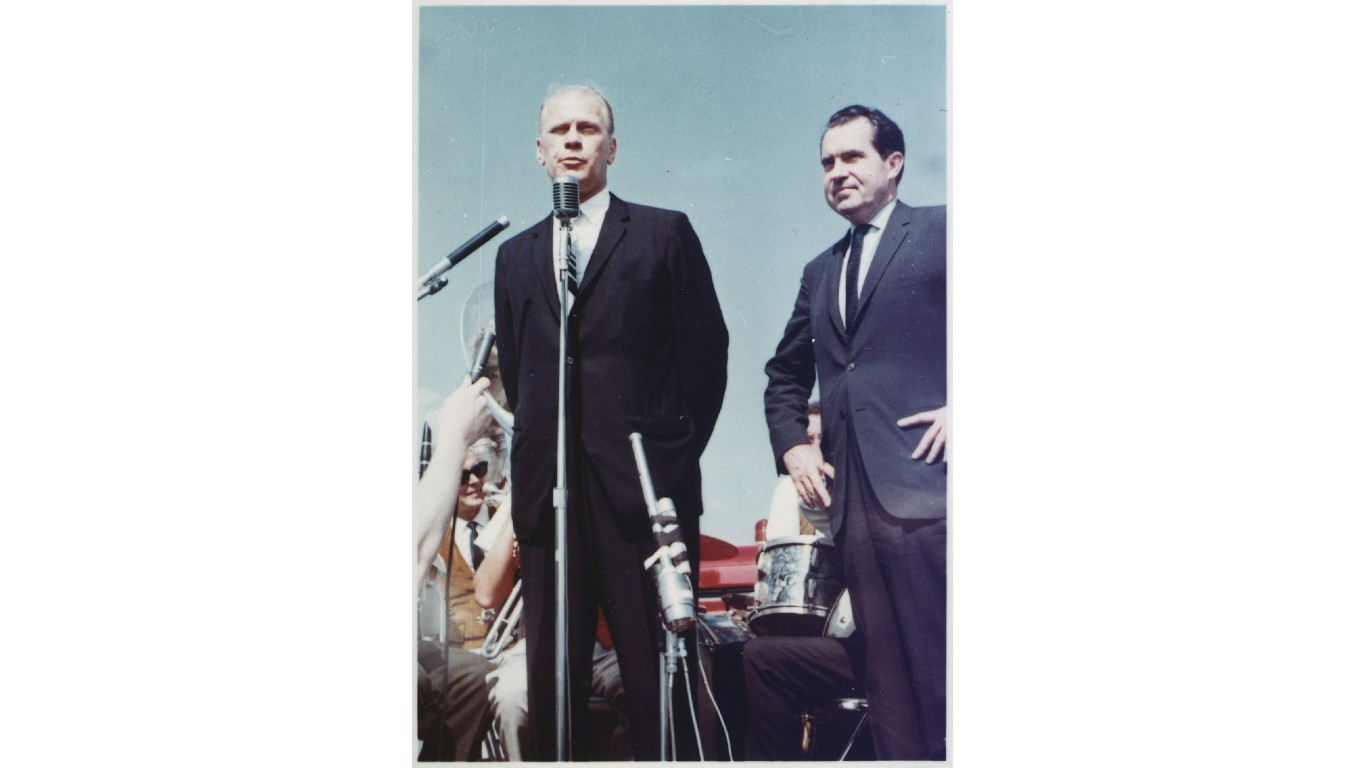
1964: Far-right Sen. Barry Goldwater runs for president
In 1964, far-right Arizona Sen. Barry Goldwater ran for the U.S. presidency. His campaign was characterized by his hawkish stance on Cold War issues, leading critics to label him a warmonger. This image, compounded with his controversial opposition to the Civil Rights Act, contributed to his overwhelming electoral defeat to incumbent President Lyndon B. Johnson. The campaign was covered in the media for its stark ideological divide and its influence on the future direction of the Republican Party.
[in-text-ad-2]

1964: Nelson Mandela sentenced to life imprisonment
In 1964, anti-apartheid activist Nelson Mandela was sentenced to life imprisonment in Robben Island Prison off the coast of Cape Town for conspiring to overthrow the South African government. He served more than 25 years, during which time his incarceration prompted international appeals for his release. This event drew global attention to South Africa’s apartheid regime, intensifying calls for its abolition. The U.S. avoided criticizing the government’s racial policies, partly because many southern U.S. states had similar policies under Jim Crow laws – but in the mid- to late 1960s, the U.S. imposed an armament embargo on South Africa and reduced trade. Mandela was released in February 1990.
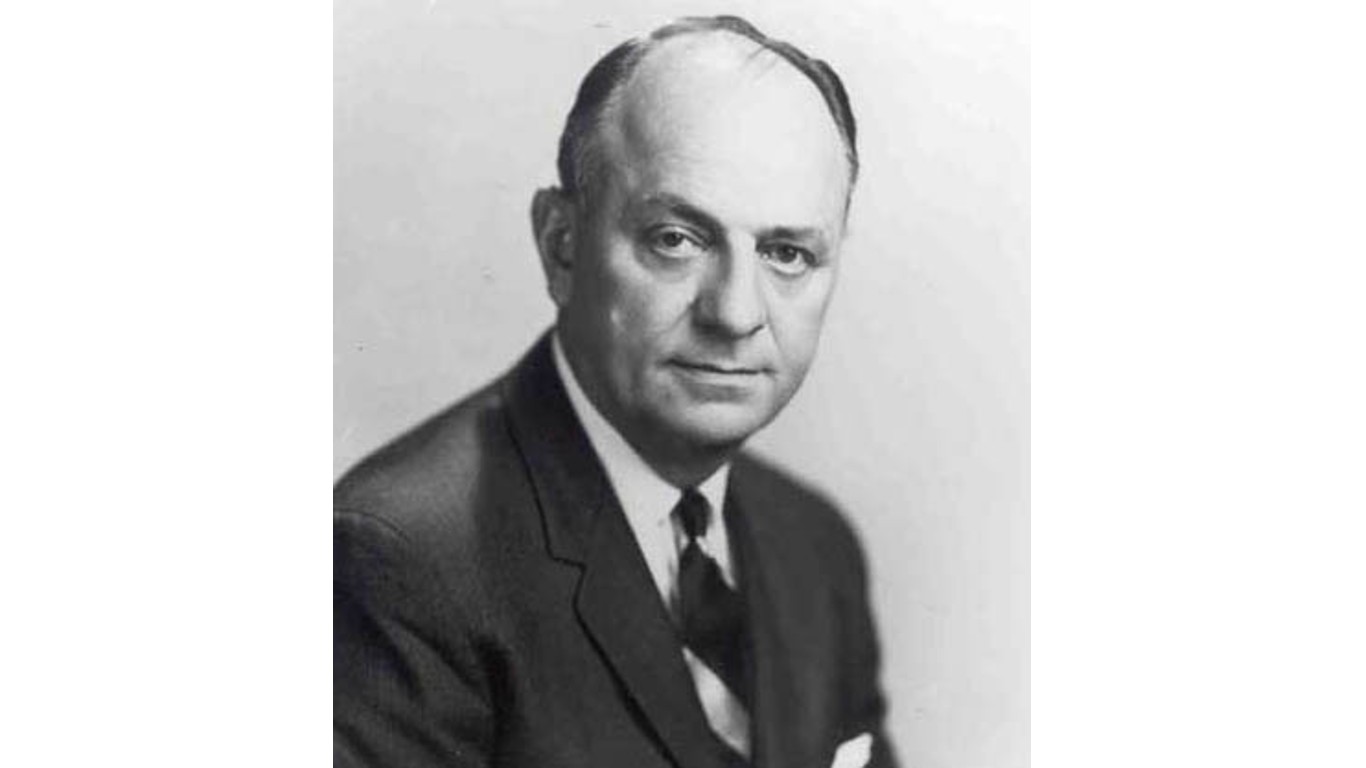
1964: Surgeon General affirms that cigarette smoking causes cancer
In 1964, U.S. Surgeon General Luther Terry officially announced that cigarette smoking causes lung cancer, based on comprehensive reviews of more than 7,000 medical studies. This announcement, made amid rising smoking rates and industry advertising, marked a critical turning point in public health, sparking significant policy changes and public awareness campaigns about the dangers of smoking. In 2006, a federal judge ruled that cigarette makers were involved in a 50-year conspiracy to deceive the public about the dangers of smoking.
[in-text-ad]
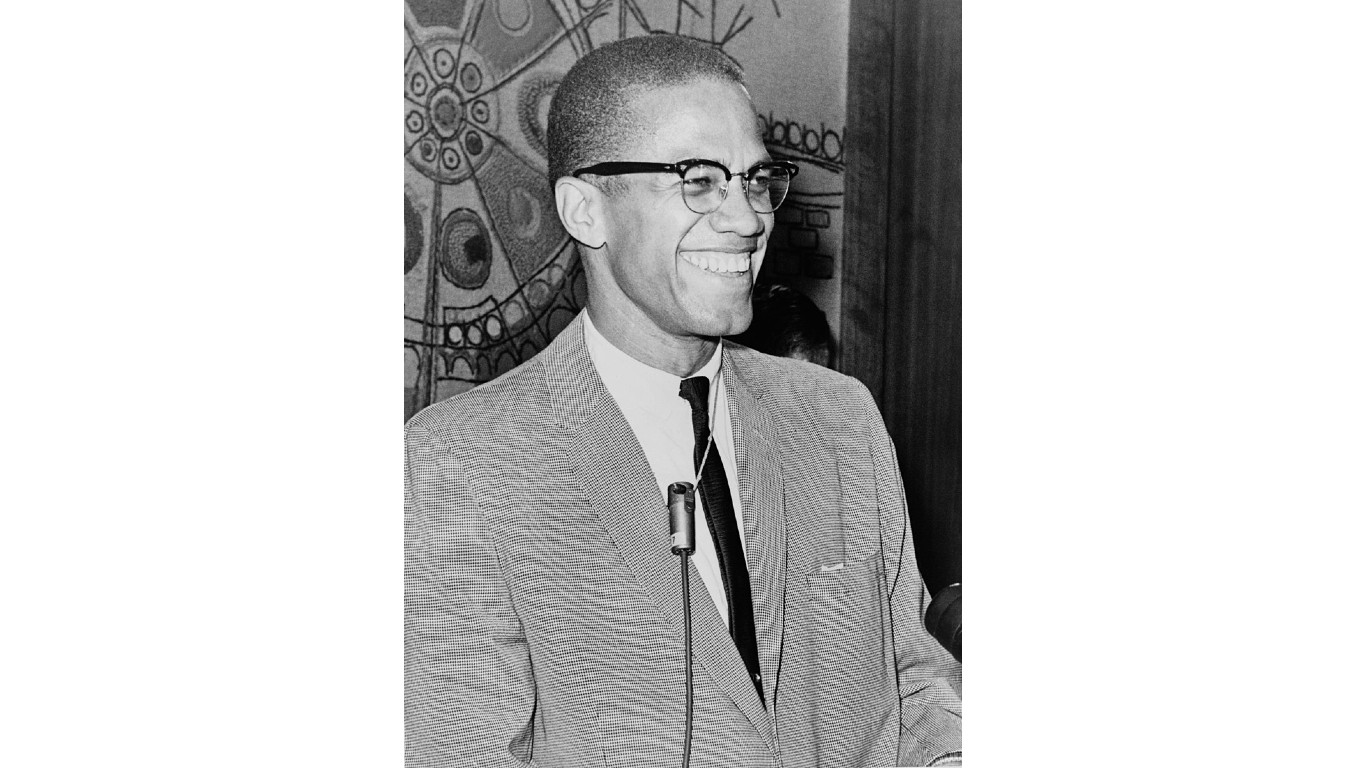
1965: Malcolm X Assassinated
Malcolm X, a prominent Black Muslim leader known for his oftentimes inflammatory advocacy for racial justice, was assassinated on Feb. 21, 1965, while making a speech in New York City. Three men – Mujahid Abdul Halim, Muhammad A. Aziz, and Khalil Islam – were charged with the murder, and all were given sentences of 20 years to life. Halim, who had been seen actually shooting Malcom X, served his time and was paroled in 2010. Aziz and Islam – who Halim said were not involved in the crime – were paroled earlier, Aziz in 1985, Islam in 1987. Both were exonerated in 2021, after decades of criticisms of the case against them. Civil rights attorney Ben Crump filed a federal action on behalf of Malcolm X’s family in February 2023, accusing the CIA and the New York Police Department of “fraudulent concealment of evidence surrounding Malcolm X’s murder.”
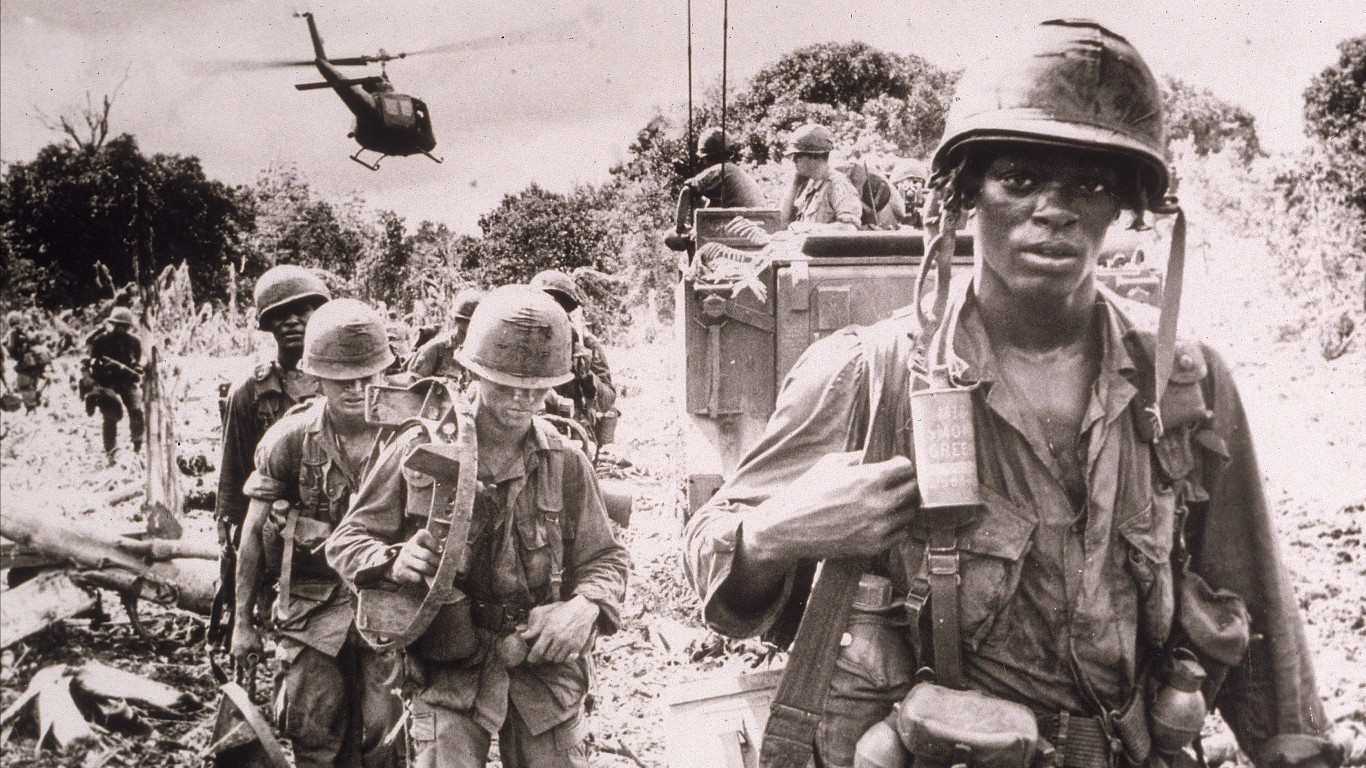
1965: U.S. combat troops deployed in Vietnam
In 1965, U.S. involvement in the Vietnam War escalated dramatically. President Lyndon B. Johnson authorized the deployment of combat troops to South Vietnam, marking a turning point from advisory and support roles. The decision came in belated response to the Gulf of Tonkin Incident. This marked the beginning of a long and contentious conflict that stirred great controversy and division in the United States.
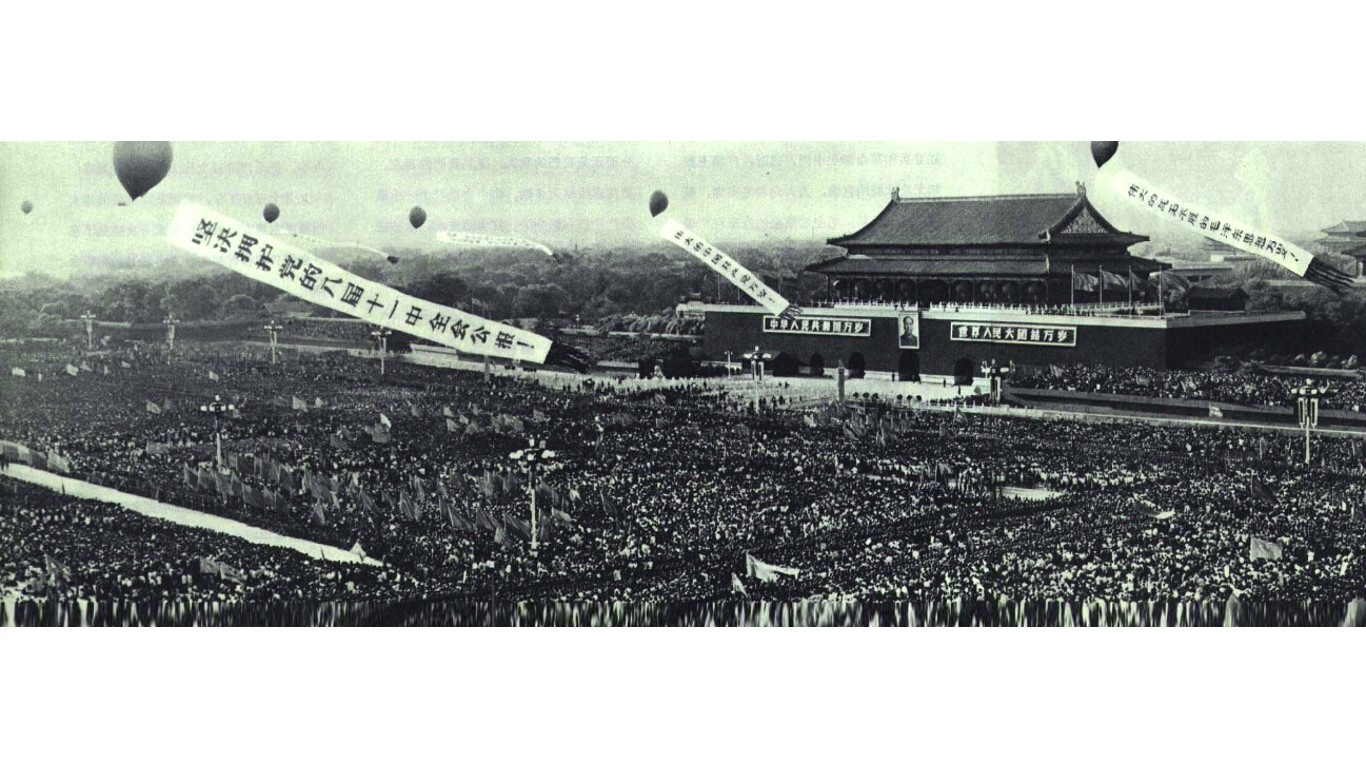
1966: China’s Cultural Revolution begins
In 1966, China’s Cultural Revolution, aimed at reinforcing the achievements of the nation and destroying anything considered traditional or capitalistic, was launched by Communist Party Chairman Mao Zedong. Mao mobilized the youth in a campaign against “bourgeois” elements, leading to widespread chaos, with millions persecuted, historical relics destroyed, and educational systems disrupted. The news of the year was dominated by the massive rallies, violent class struggle, and the rise of the Red Guards, radical students devoted to Mao’s ideology.
[in-text-ad-2]
1967: Congressman convicted on numerous charges
Bobby Baker, Secretary to the Senate Majority Leader and a close advisor of President Johnson, resigned his position in 1963 during a Senate investigation into his business dealings and political machinations. In 1967, he was convicted of tax evasion, conspiracy to defraud the government, and theft, and served 18 months in prison.
1967: Israeli-Arab Six Day War
The Six-Day War in 1967 was a pivotal event in Middle Eastern history. It began when Israel launched preemptive strikes against Egypt, Jordan, and Syria, fearing an imminent attack. The swift Israeli victory expanded its territory significantly, capturing the Sinai Peninsula, Gaza Strip, West Bank, East Jerusalem, and the Golan Heights. This territorial expansion, coupled with the displacement of Palestinian populations, heightened tensions and set the stage for the enduring Israeli-Palestinian conflict that continues to this day.
[in-text-ad]
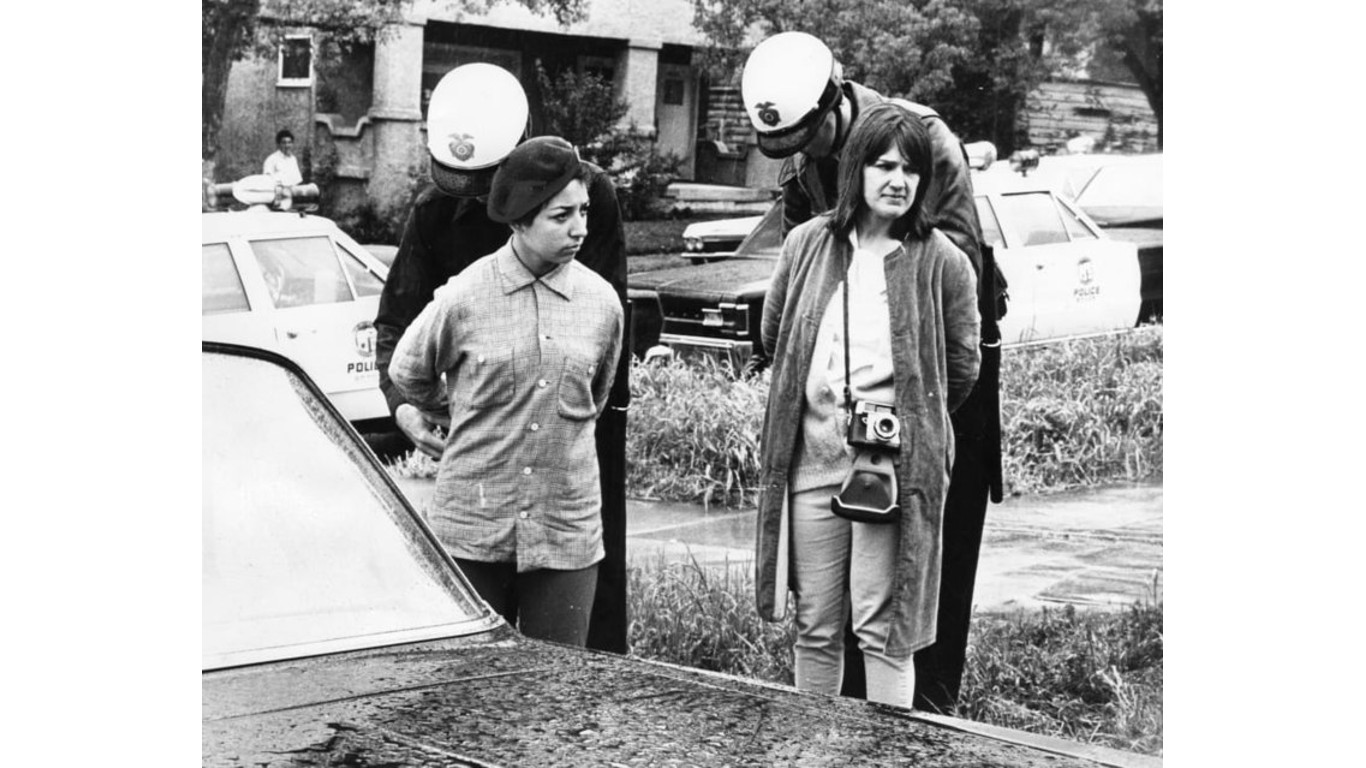
1968: East Los Angeles walkouts by Hispanic students
In 1968, thousands of Mexican-American students in East Los Angeles staged a mass walkout, known as the “Blowout,” to protest educational inequality. Sparking the first major urban protest of the Chicano civil rights movement, students demanded better resources and fair treatment. Their actions, which led to repercussions including arrests, marked a pivotal moment in the fight for educational justice and attracted widespread media attention.
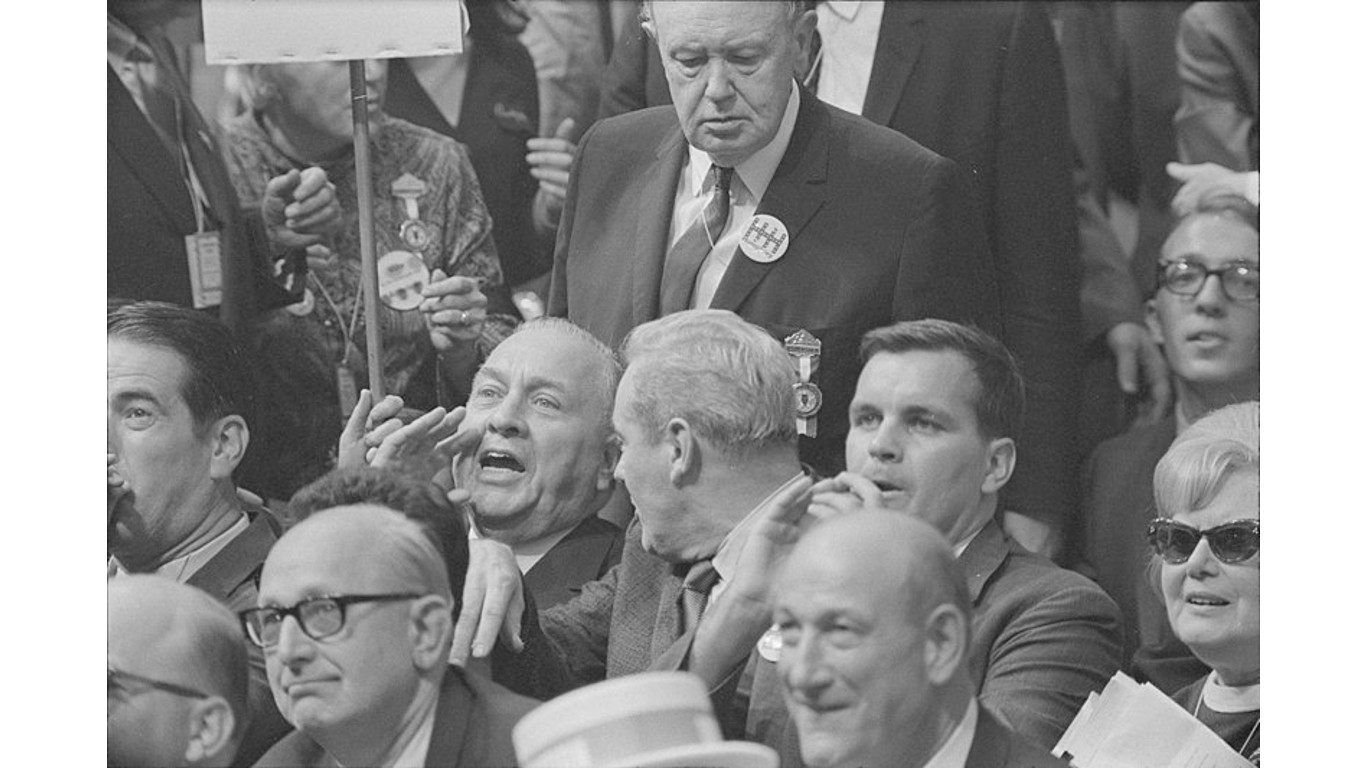
1968: The Democratic Convention of 1968
The Democratic Convention in Chicago was marred by violence during one of America’s most turbulent years. As Democrats gathered to select their presidential candidate, outside anti-war and civil-rights protestors clashed with police. The convention became notorious for the violent police response, widely reported in the media, which saw tear gas used and hundreds of protestors arrested or injured, in what has been often described as a “police riot.”
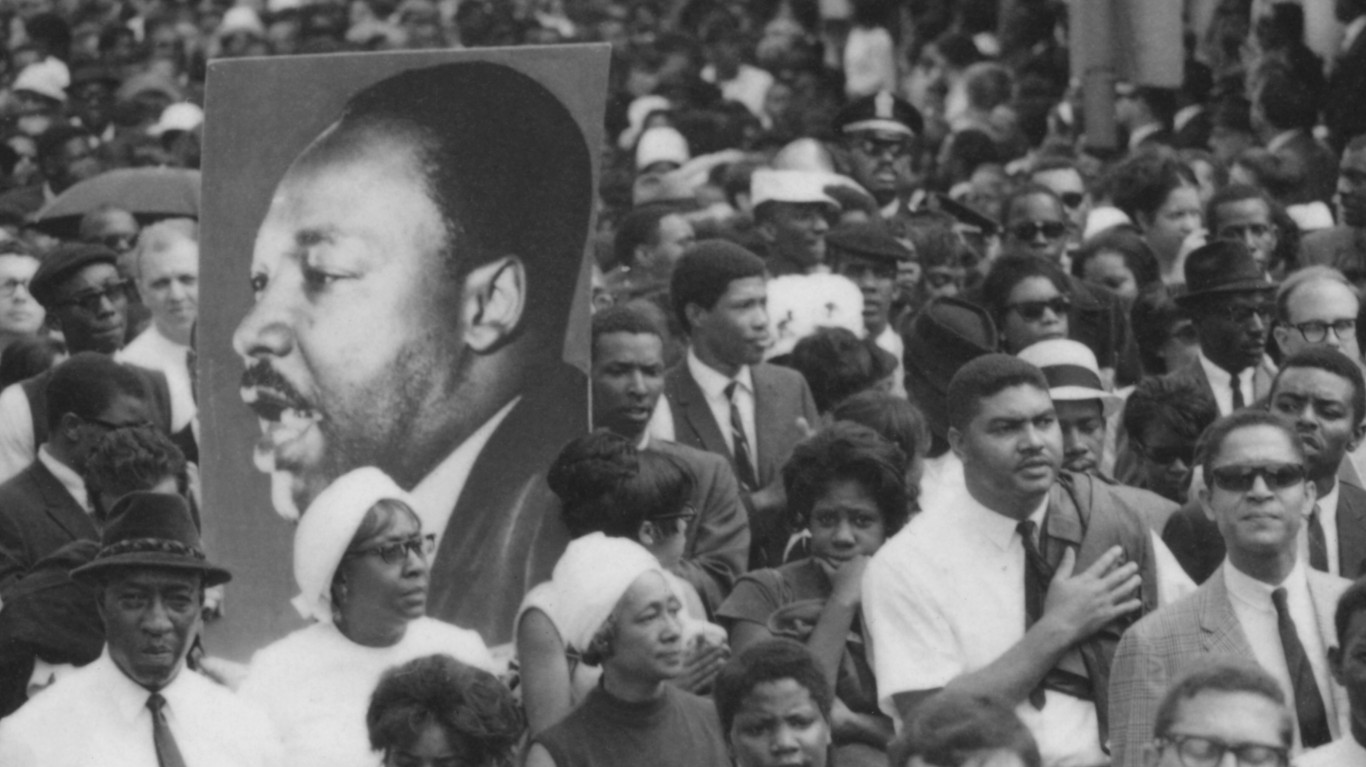
1968: Assassinations of Martin Luther King, Jr. and Robert F. Kennedy
In this single year, two significant advocates for non-violent change, Martin Luther King Jr. and Robert F. Kennedy, were assassinated, deepening America’s social and political divisions. King, a civil-rights leader, was shot in Memphis on April 4. Kennedy, a presidential candidate, was killed in Los Angeles on June 5. Both murders, occurring during a turbulent period marked by war and civil unrest, sent shockwaves through the nation and dominated headlines.
[in-text-ad-2]
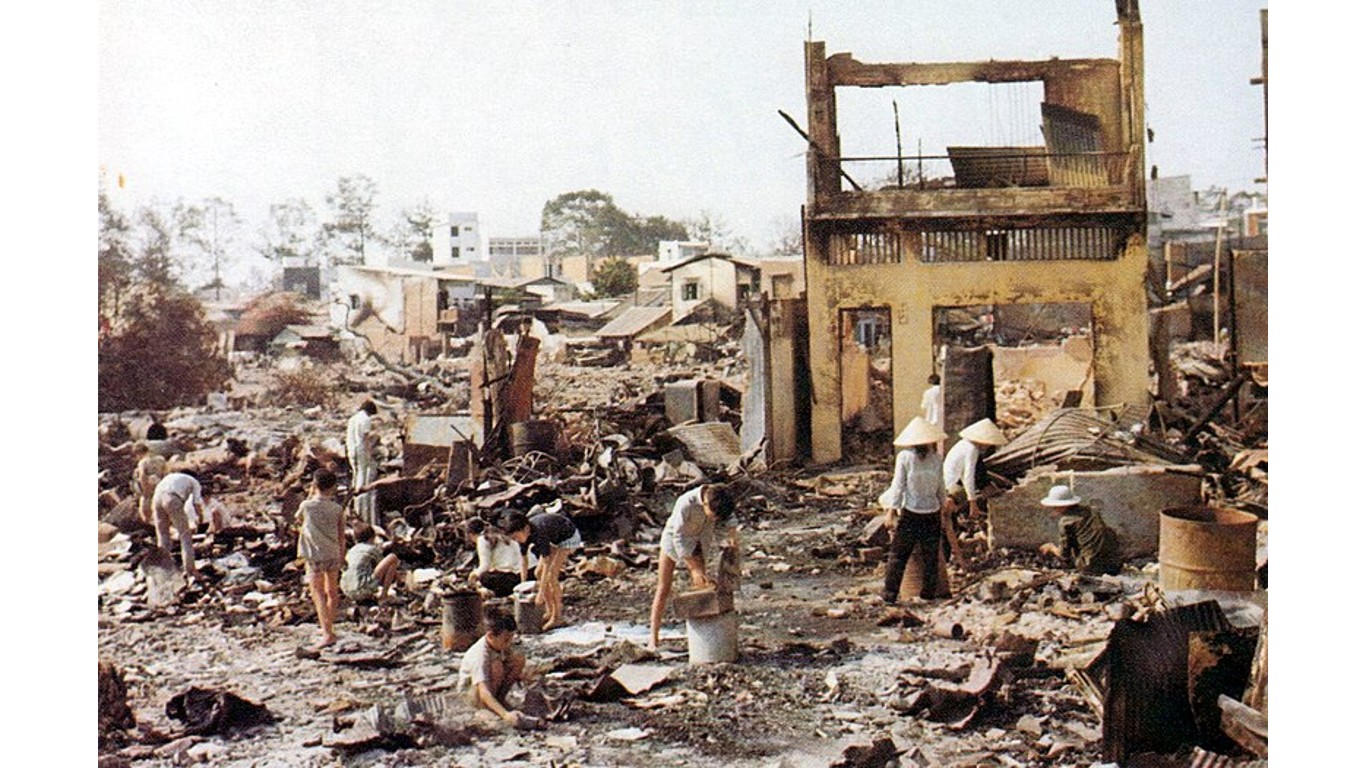
1968: Tet Offensive in South Vietnam
In 1968, the Tet Offensive was a major turning point in the Vietnam War. Launched by North Vietnamese and Viet Cong forces on the Lunar New Year holiday, Tet, the offensive failed to instigate a nationwide uprising against South Vietnam as planned. However, it significantly undermined American confidence in our ability to win the war, due to the surprise and intensity of the attacks, which were widely covered by the global media.
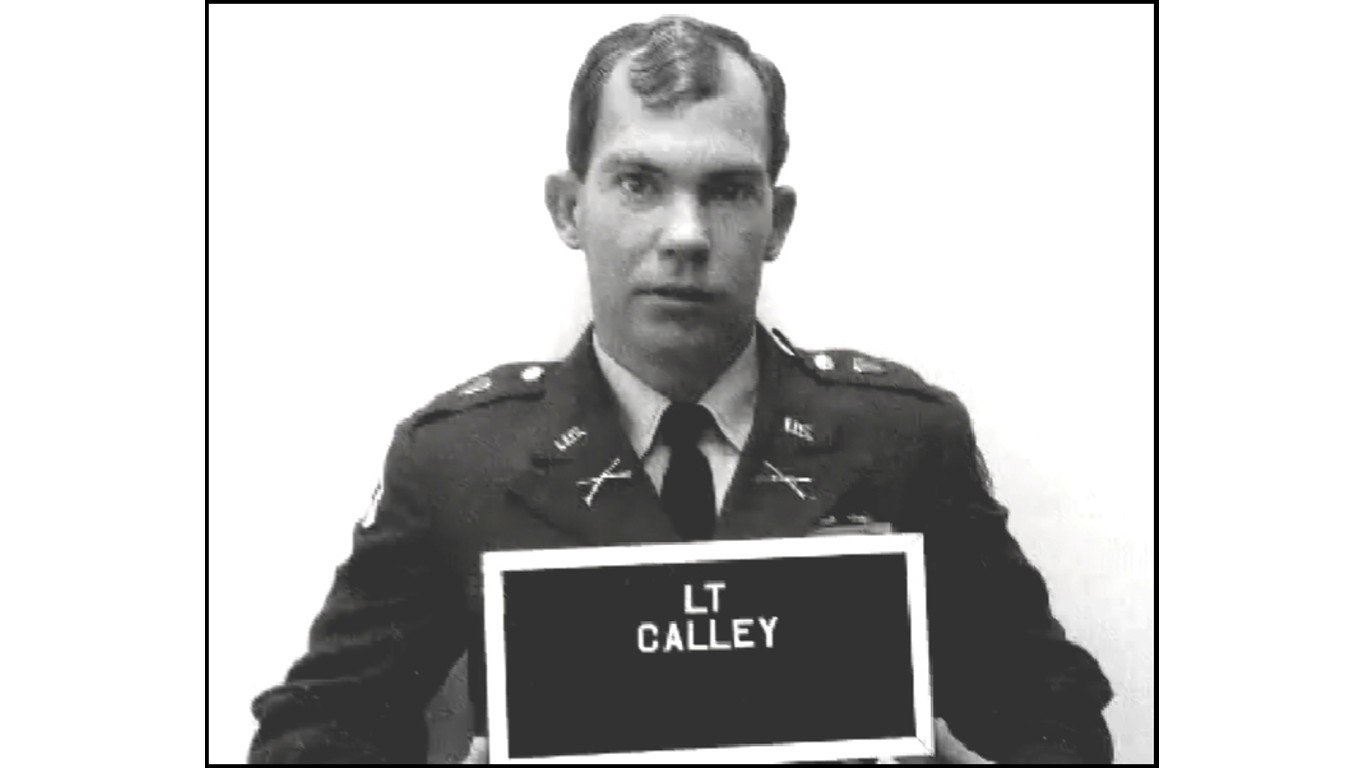
1968: My Lai Massacre
The My Lai Massacre occurred on March 16, when U.S. soldiers, led by Lieutenant William Calley, killed between 347 and 504 unarmed Vietnamese civilians in the My Lai and My Khe hamlets. The troops, believing the villagers were harboring Viet Cong, carried out the massacre under orders to destroy the village. Initially covered up, news of the event broke in late 1969, sparking international outrage and fueling anti-war sentiment.
[in-text-ad]
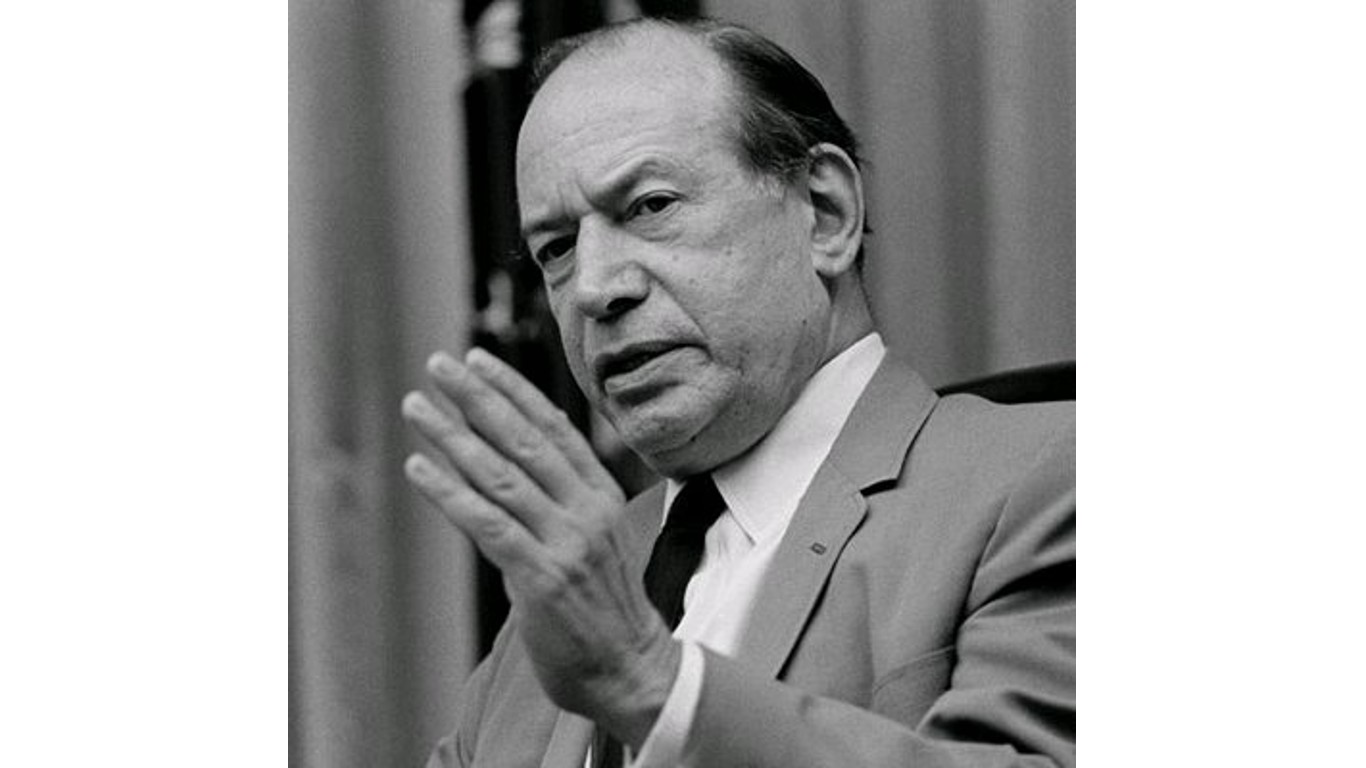
1969: U.S. Supreme Court Justice Abe Fortas resigns
U.S. Supreme Court Justice Abe Fortas resigned in 1969 after it was revealed that he had accepted a paid consultancy from industrialist Louis Wolfson, a convicted criminal. This marked an unprecedented event in the Supreme Court’s history, as Fortas was the first justice to give up his position under such circumstances. Although no formal charges were filed against him, the disclosure sparked significant controversy.
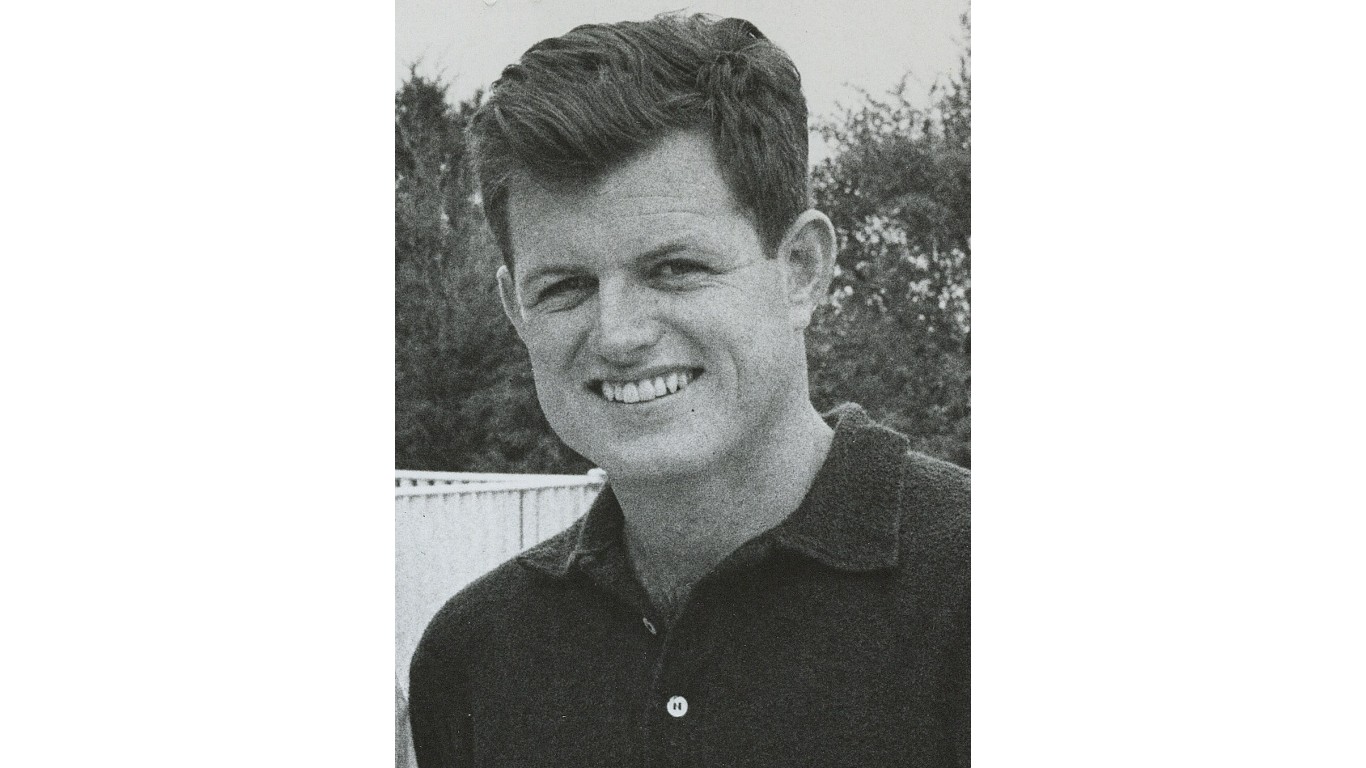
1969: Ted Kennedy’s Chappaquiddick incident
After leaving a party on Chappaquiddick Island in Massachusetts, Senator Ted Kennedy (D-Mass.) drove his car off a bridge. He was traveling with Mary Jo Kopechne, who had worked on his brother Robert’s presidential campaign the previous year, and Kopechne was apparently trapped in the vehicle and drowned. Kennedy did not report the incident to the police until the following morning, sparking controversy and landing him a suspended sentence for leaving the scene of an accident. This incident heavily influenced Kennedy’s future political career and likely scuttled any possibility of him becoming president.
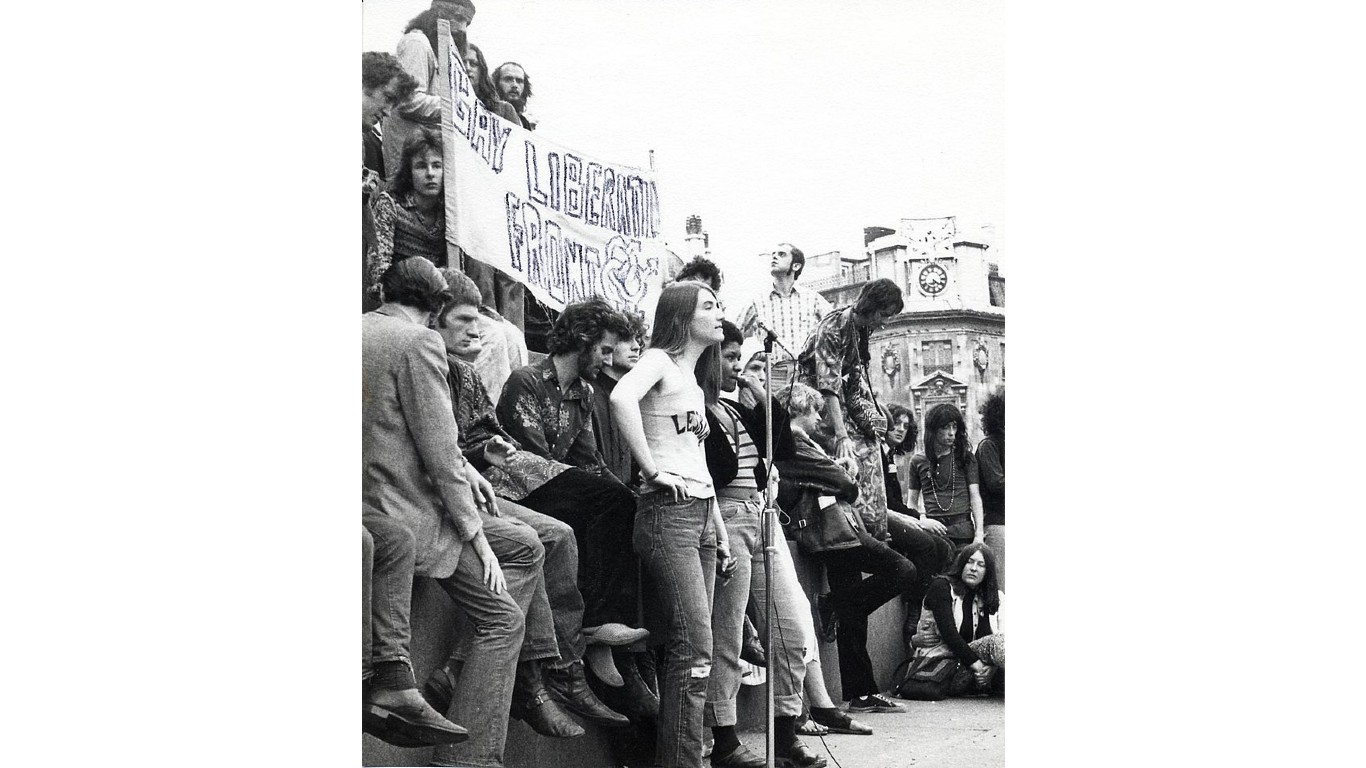
1969: Stonewall Riots
On the morning of June 28, the NYPD raided the Stonewall Inn, a gay establishment in Greenwich Village. This incursion triggered an uproar among both bar attendees and local inhabitants, resulting in six days of demonstrations and confrontations with law enforcement. This incident served as a pivotal moment in the struggle for LGBTQ+ rights and the establishment of several civil rights groups.
[in-text-ad-2]
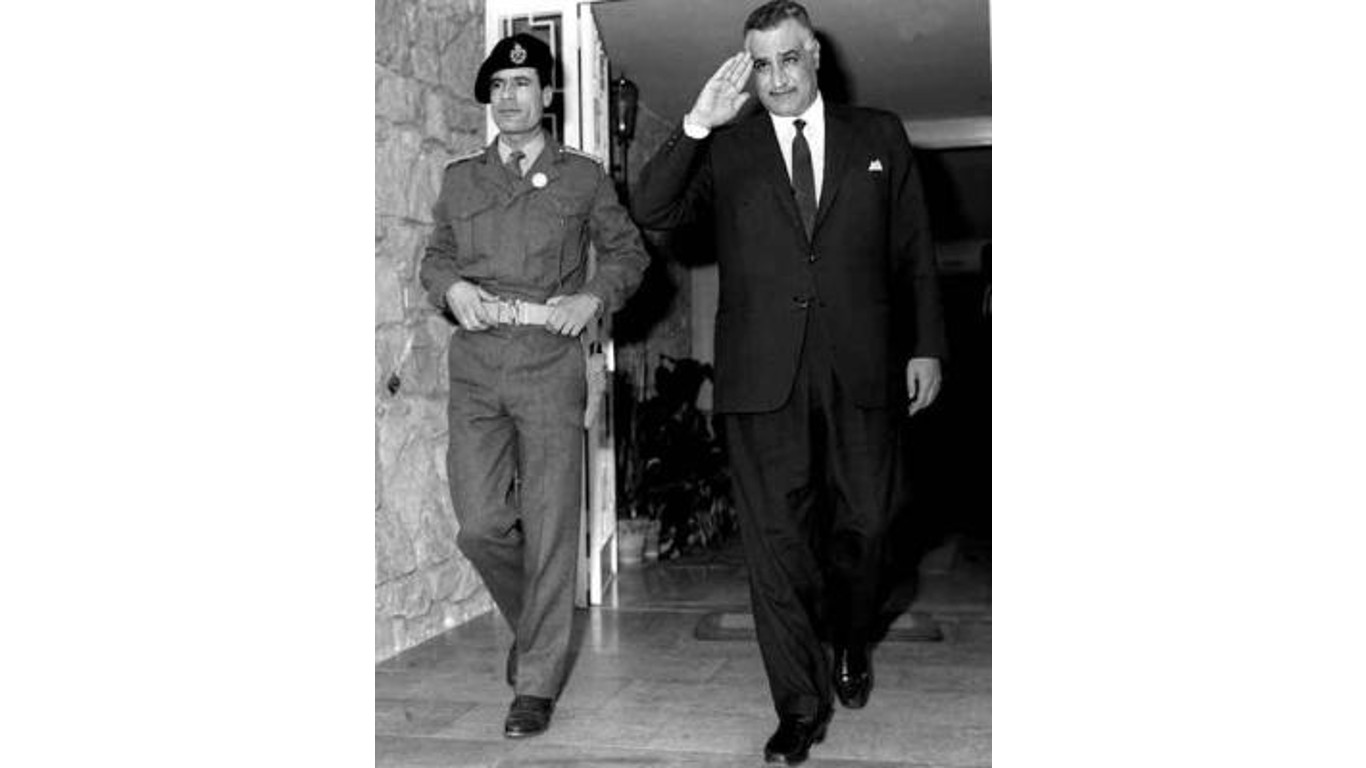
1969: Gaddafi establishes an Islamic Republic in Libya
In 1969, Muammar Gaddafi led a bloodless coup in Libya, overthrowing King Idris and establishing the Libyan Arab Republic. Gaddafi’s revolutionary government pursued a pan-Arab ideology, nationalized the oil industry, and implemented Islamic law. The regime soon became known for its sponsorship of global terrorism, which extended into the 21st century. The consequences of Gaddafi’s rise to power in 1969 reverberated worldwide for decades until he was deposed in 2011.
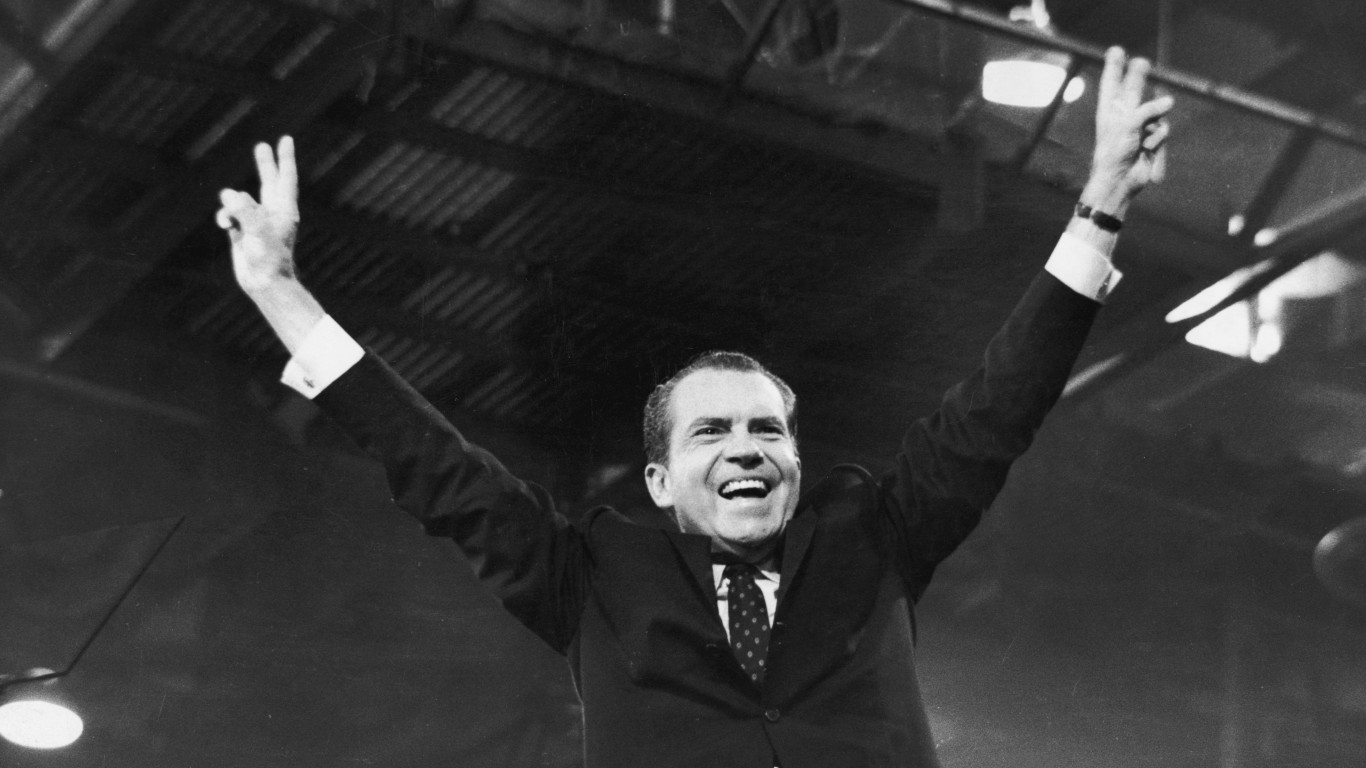
1969: Richard Nixon inaugurated for the first time
Having defeated both the Democratic Party nominee for president, Hubert Humphrey, and the American Independent Party candidate, segregationist George Wallace, Nixon claimed victory in 1968, giving new life to the Republican Party – which would win seven out of 10 presidential elections between ’68 and 2004. He claimed office on Jan. 20, sworn in by Chief Justice Earl Warren.
[in-text-ad]
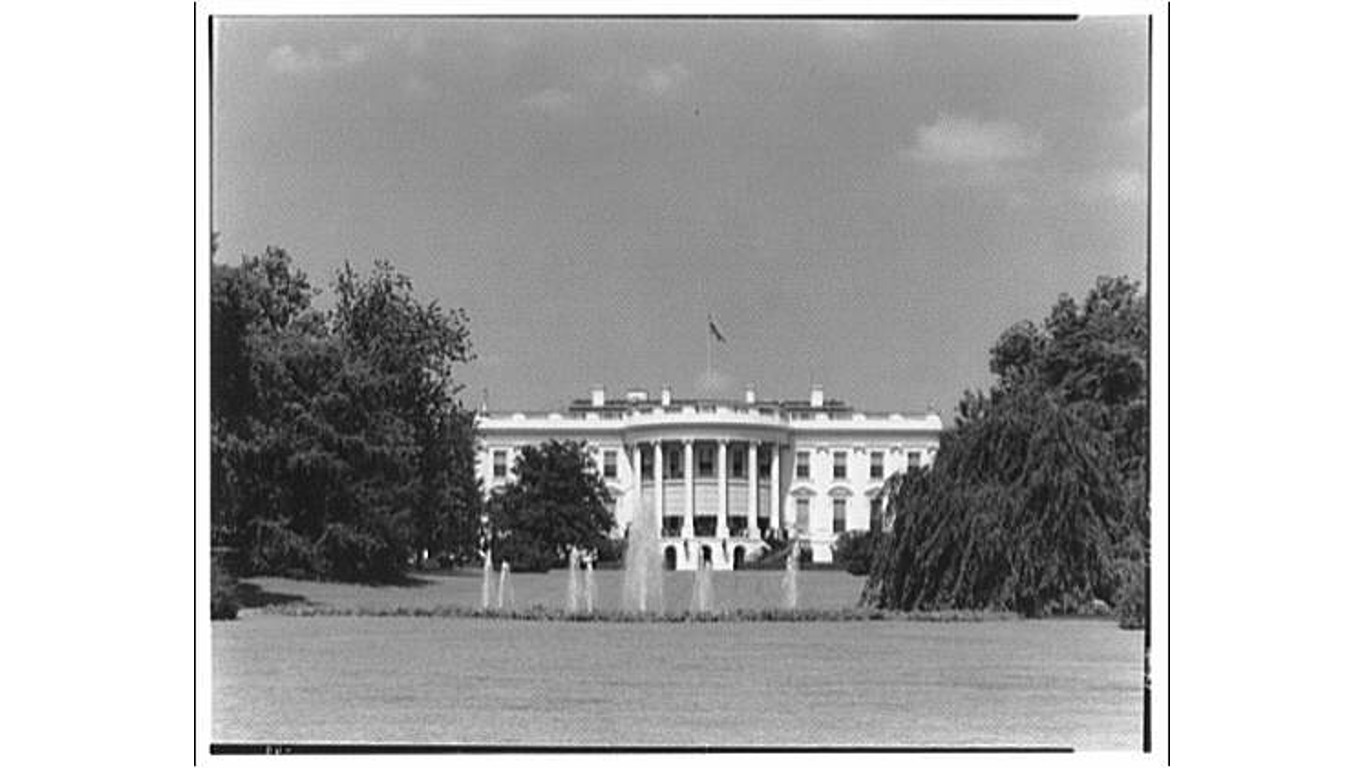
1969: CIA sent to Uruguay to thwart socialists
Amid heightened Cold War tensions, the U.S., fearing the rise of socialist movements in Uruguay, reportedly dispatched a CIA team there to aid local authorities. The team allegedly guided police in honing coercive interrogation techniques. These events presaged the 1973 coup, which ushered in a U.S.-friendly president, a change that would significantly alter Uruguay’s political landscape.
Travel Cards Are Getting Too Good To Ignore (sponsored)
Credit card companies are pulling out all the stops, with the issuers are offering insane travel rewards and perks.
We’re talking huge sign-up bonuses, points on every purchase, and benefits like lounge access, travel credits, and free hotel nights. For travelers, these rewards can add up to thousands of dollars in flights, upgrades, and luxury experiences every year.
It’s like getting paid to travel — and it’s available to qualified borrowers who know where to look.
We’ve rounded up some of the best travel credit cards on the market. Click here to see the list. Don’t miss these offers — they won’t be this good forever.
Thank you for reading! Have some feedback for us?
Contact the 24/7 Wall St. editorial team.
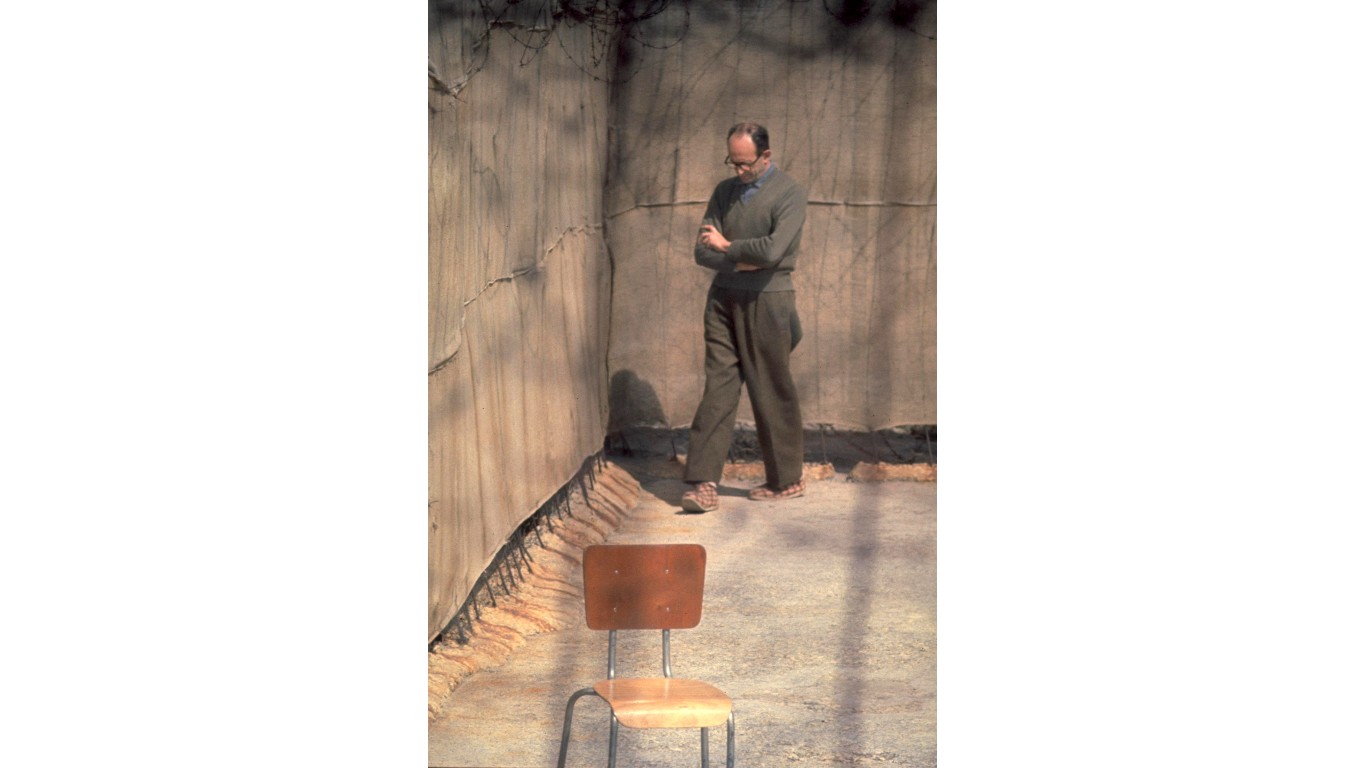
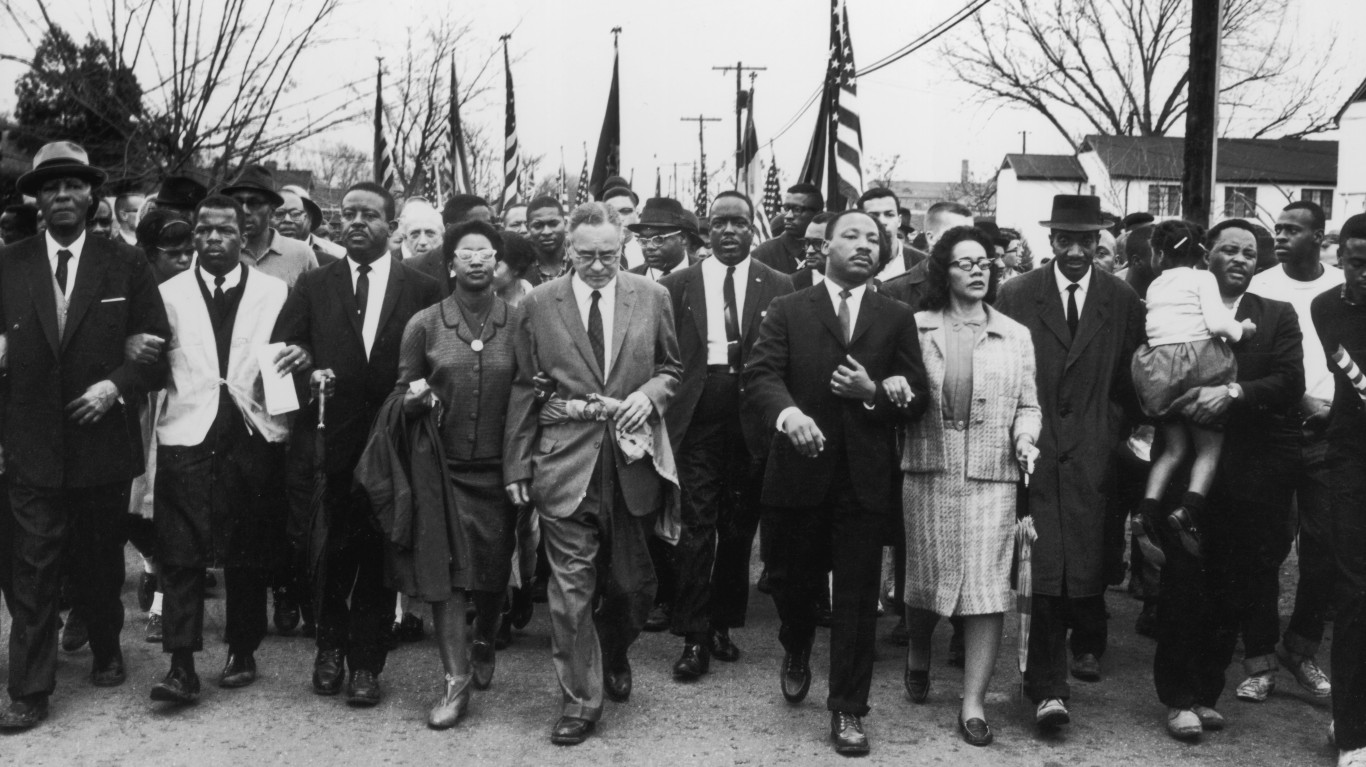 24/7 Wall St.
24/7 Wall St.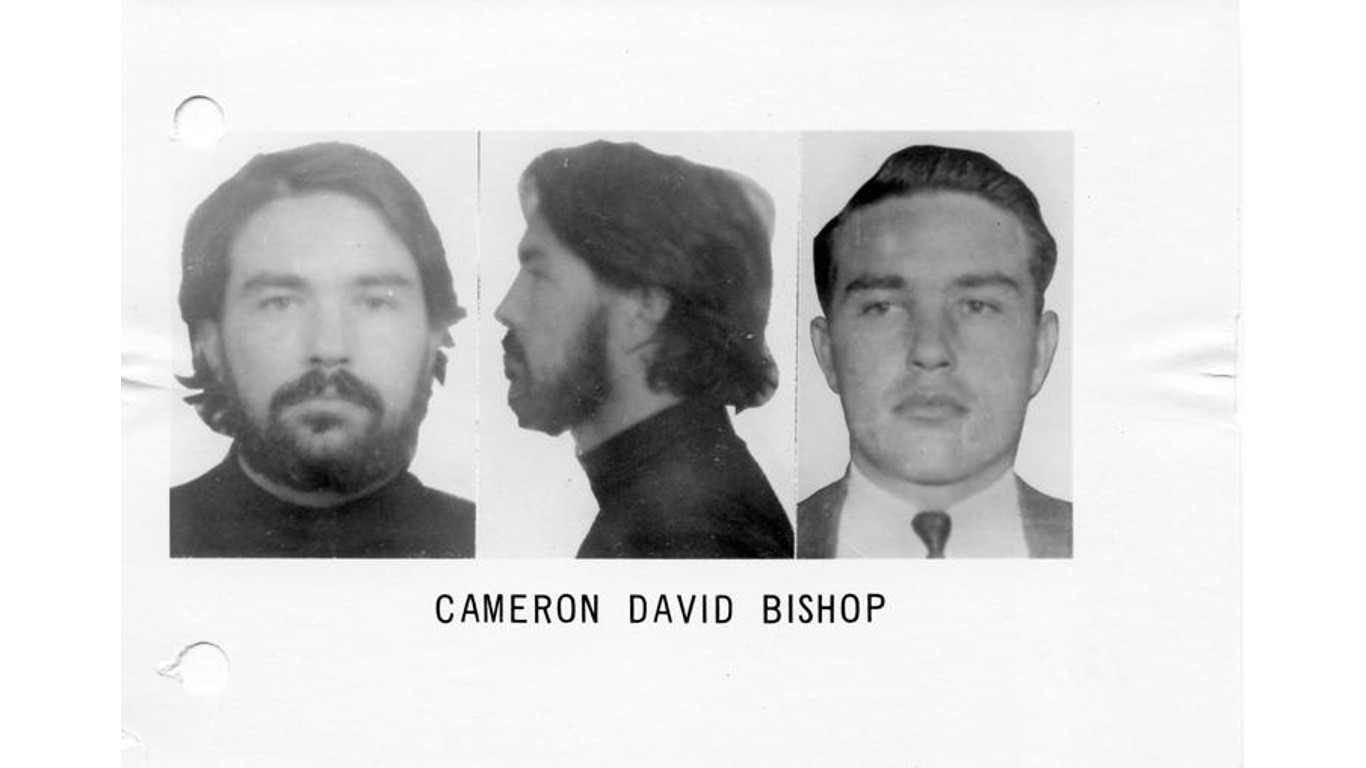 24/7 Wall St.
24/7 Wall St.